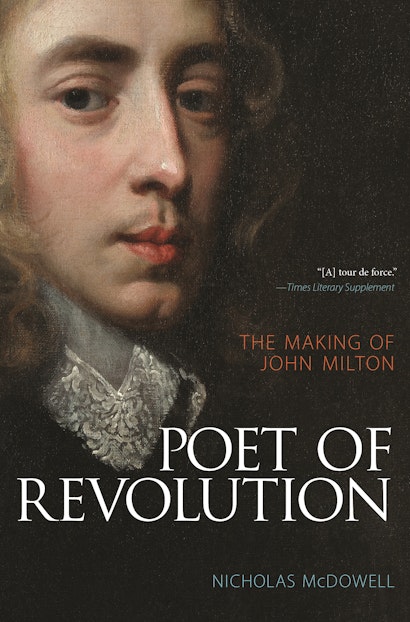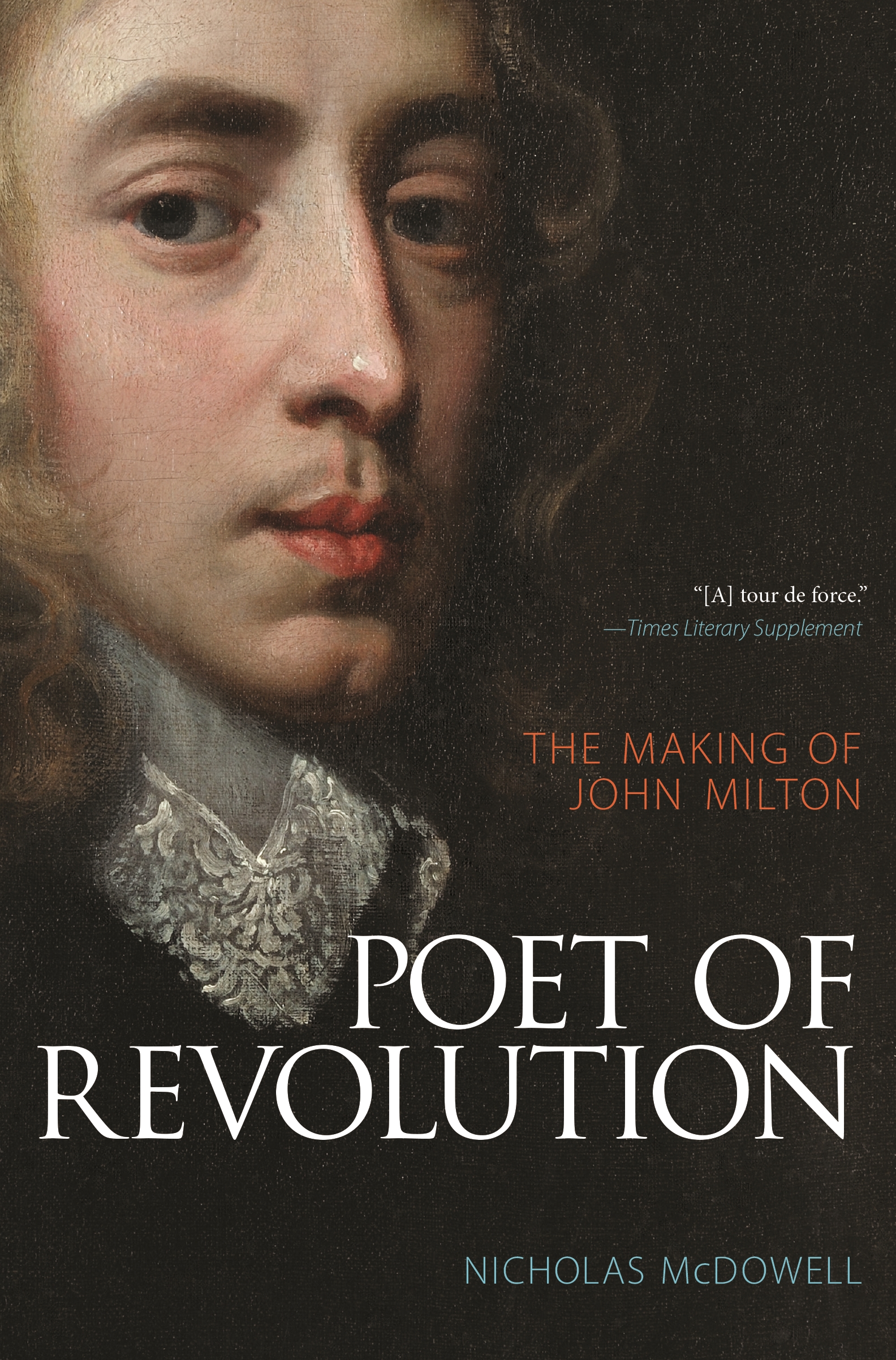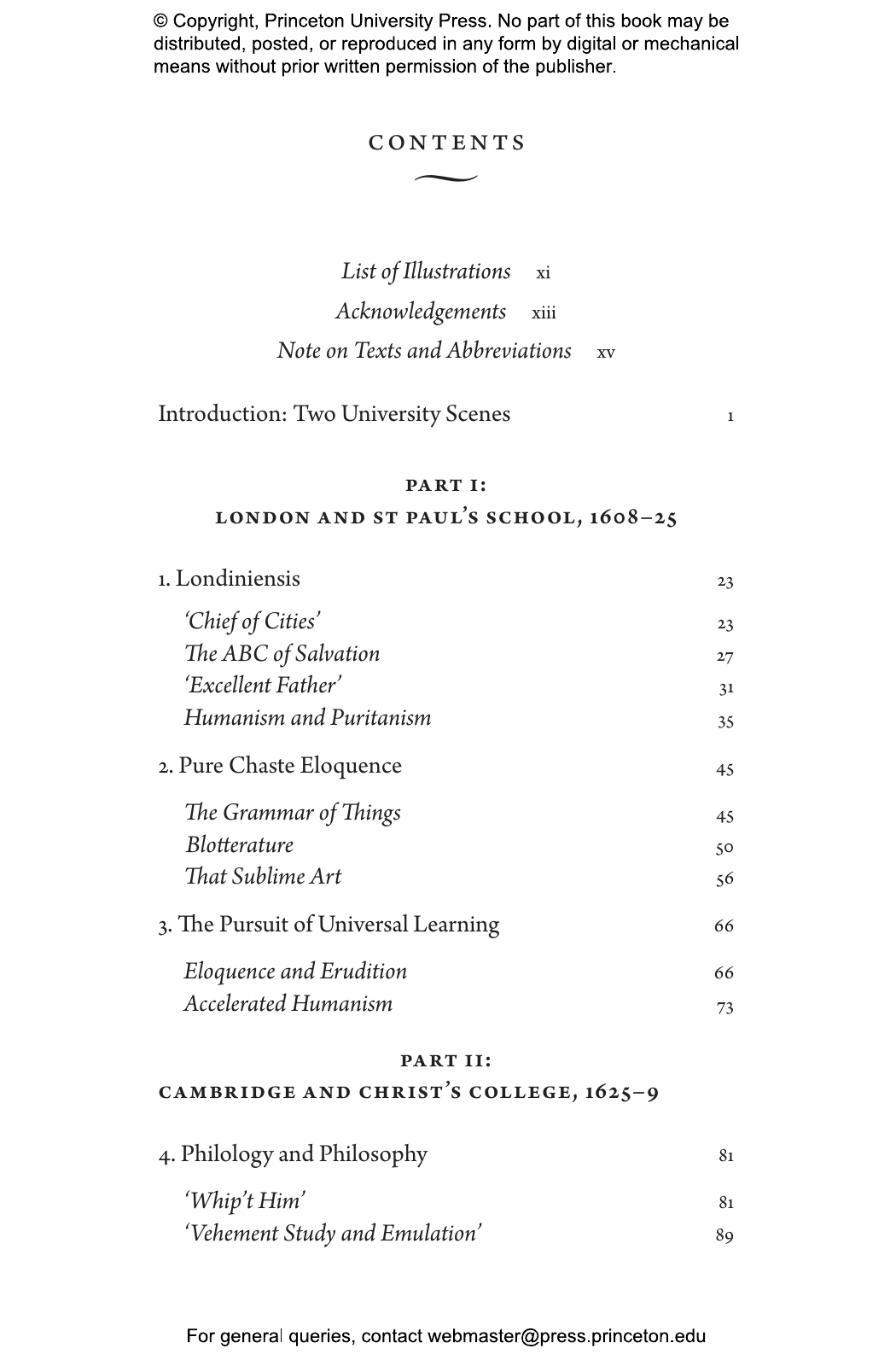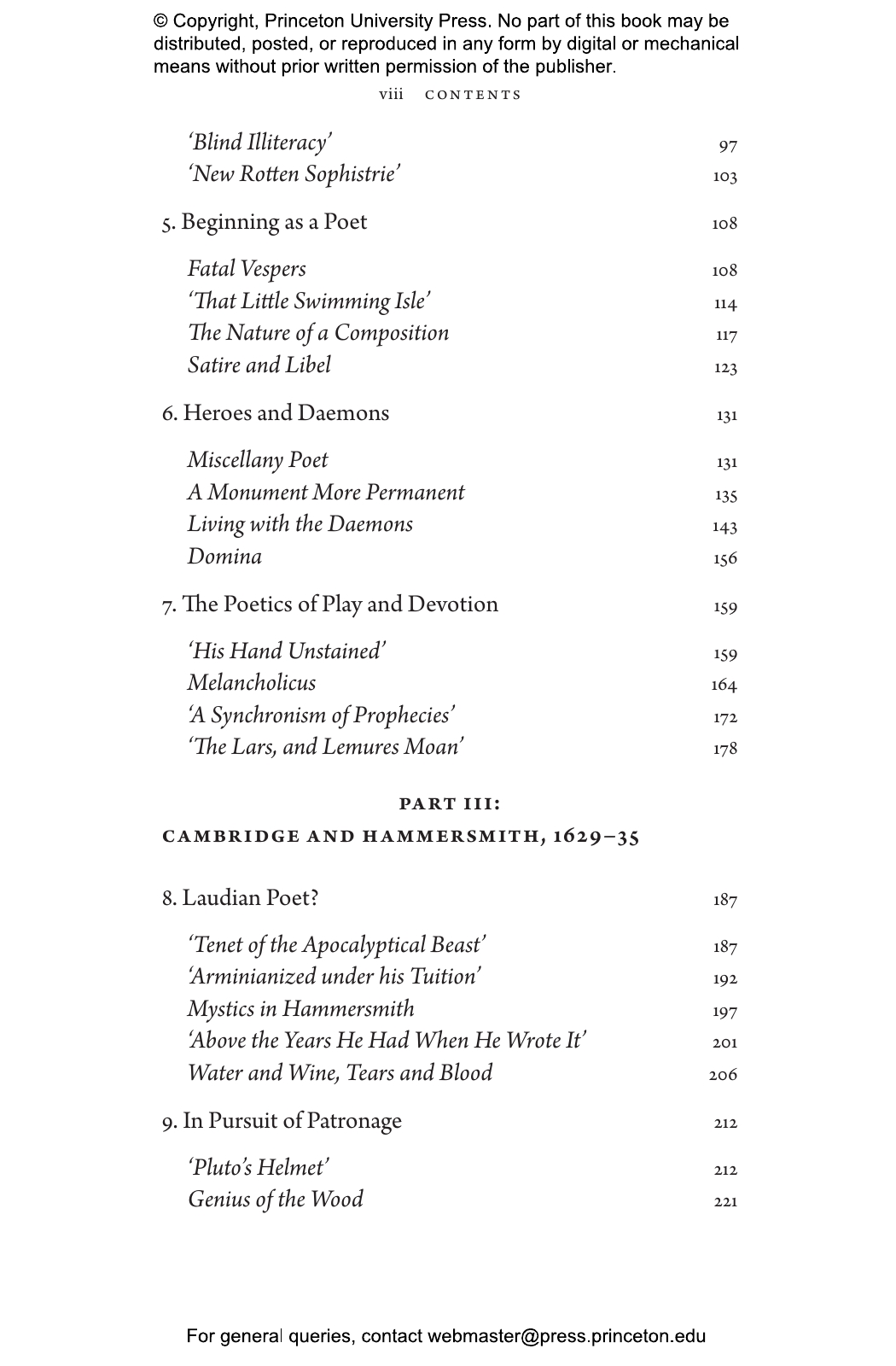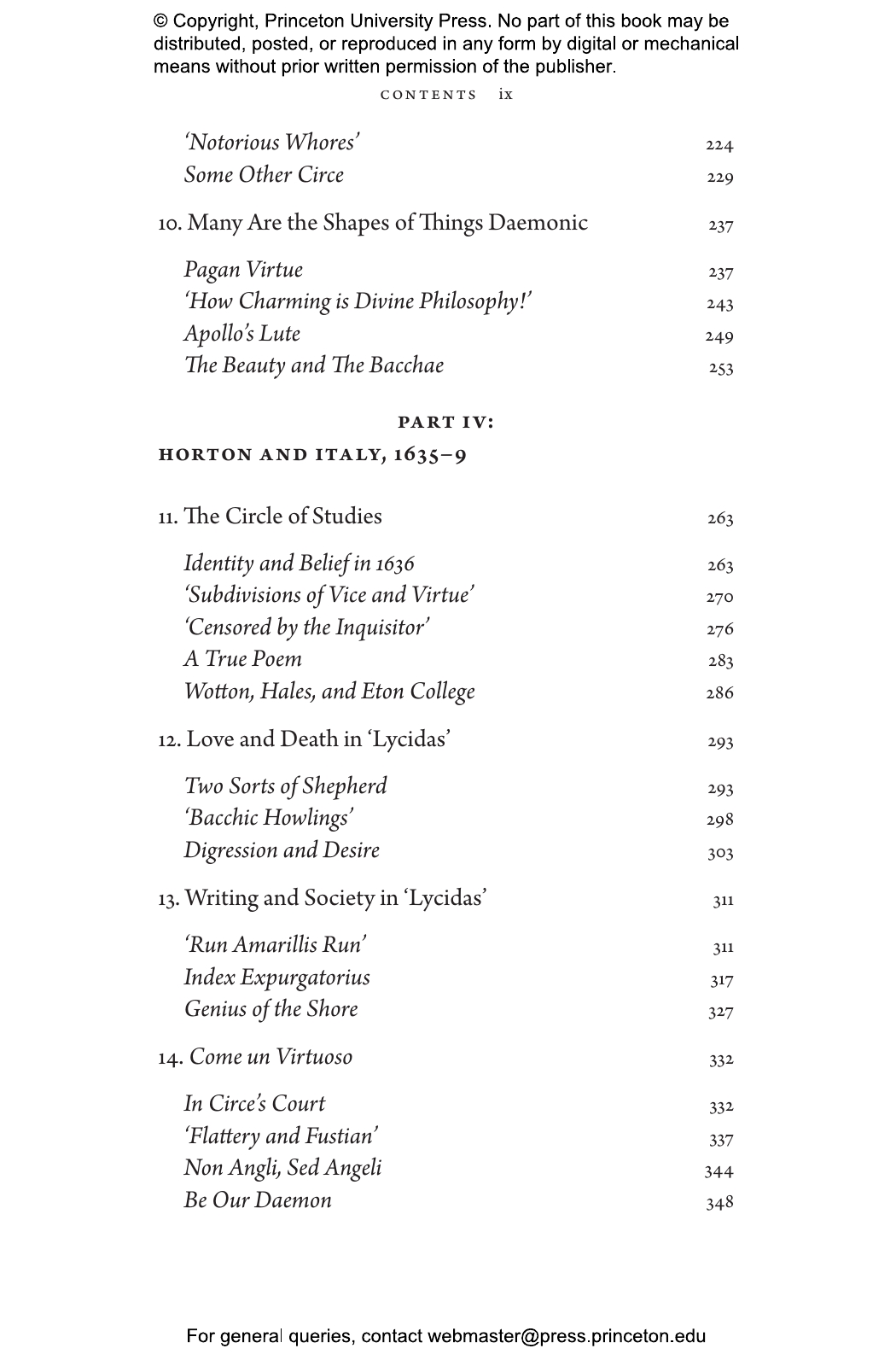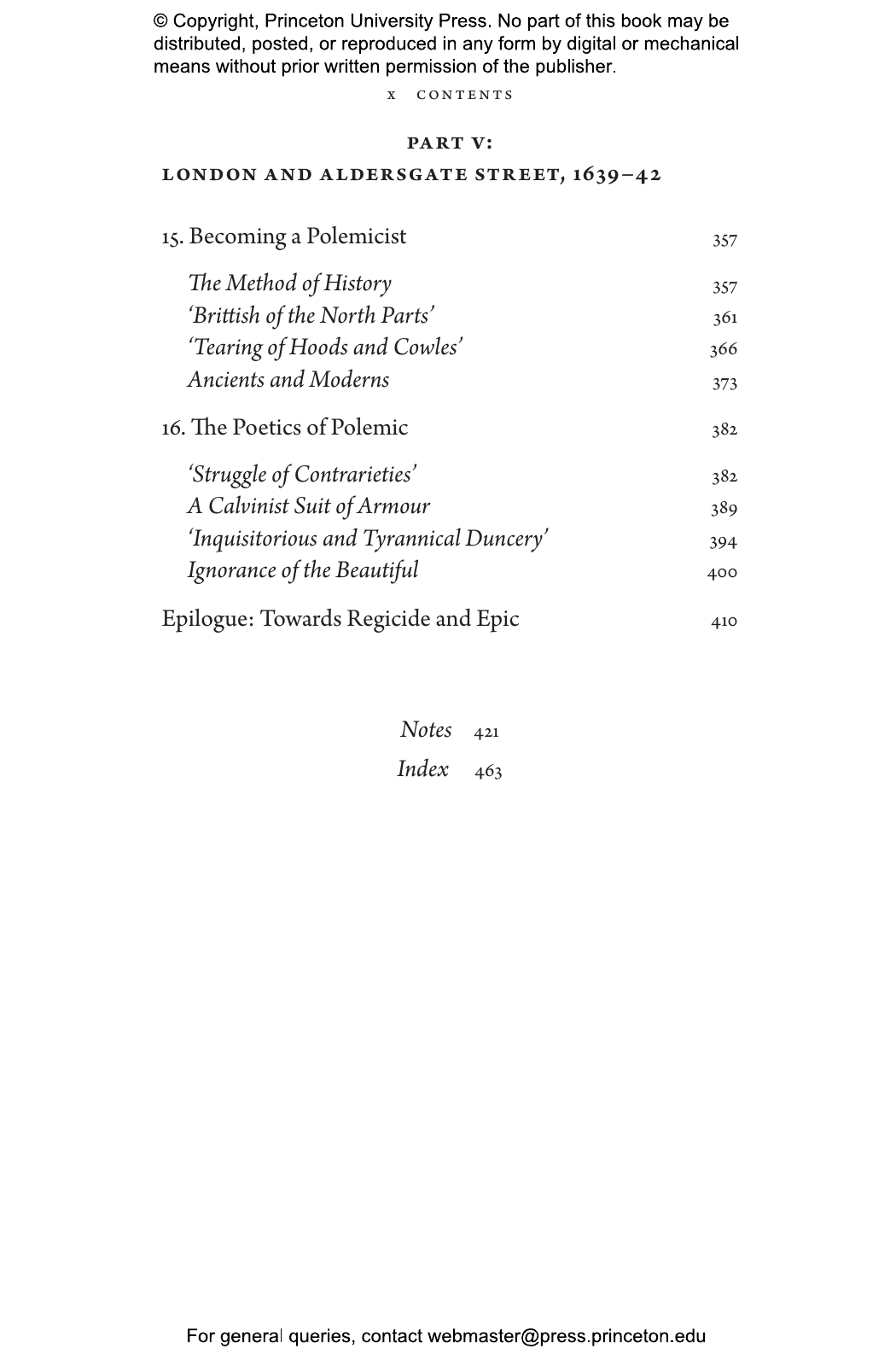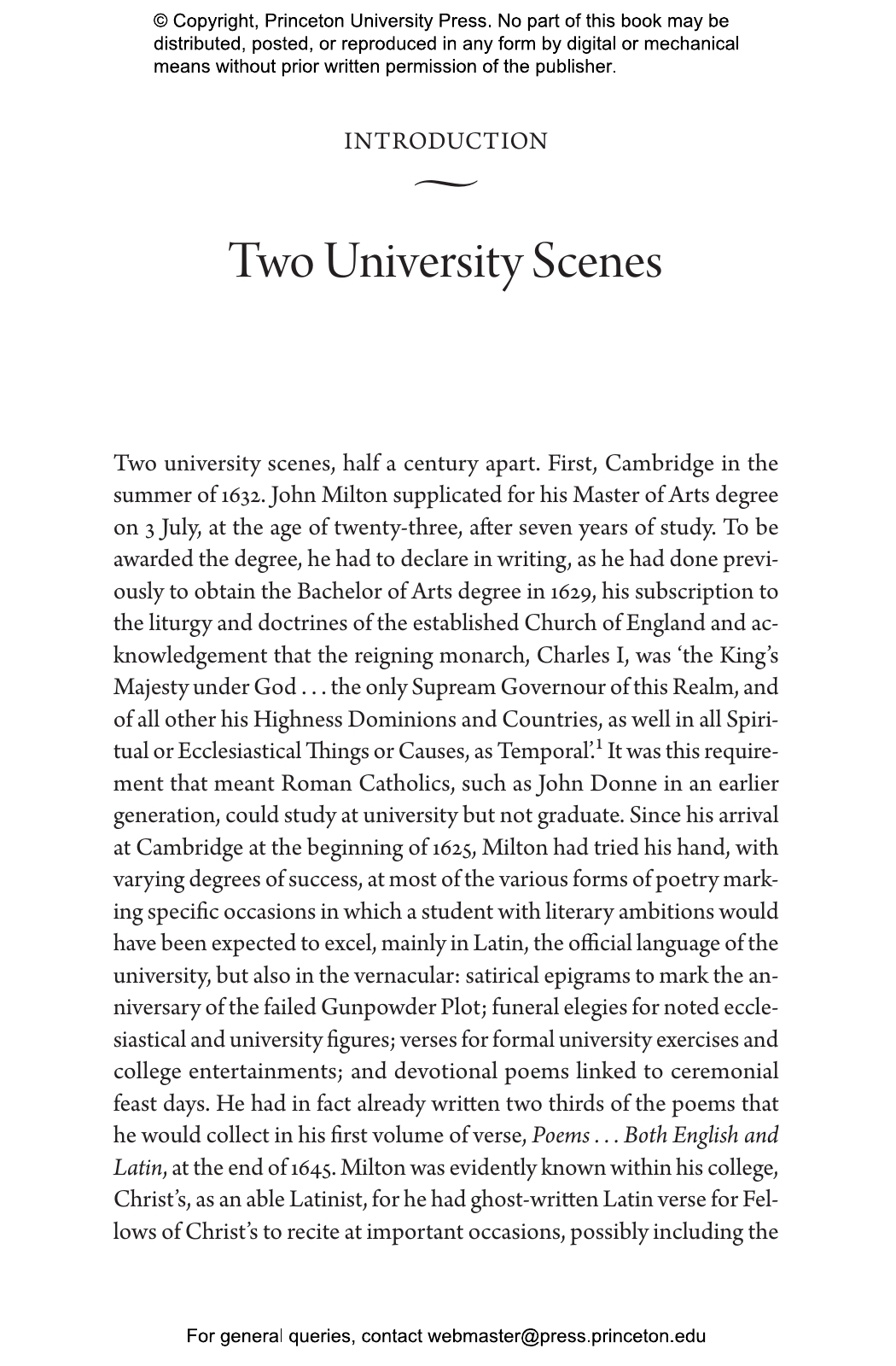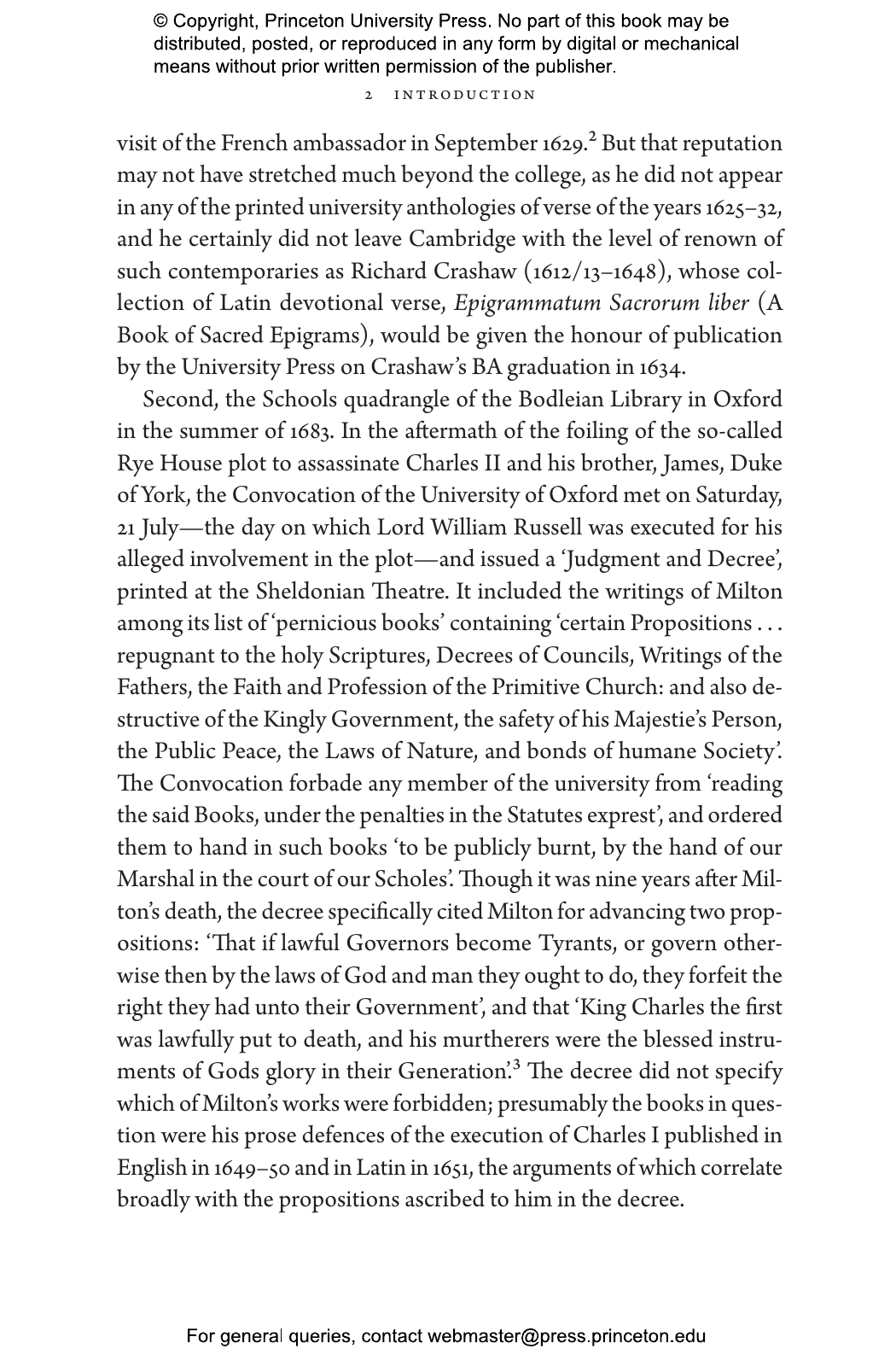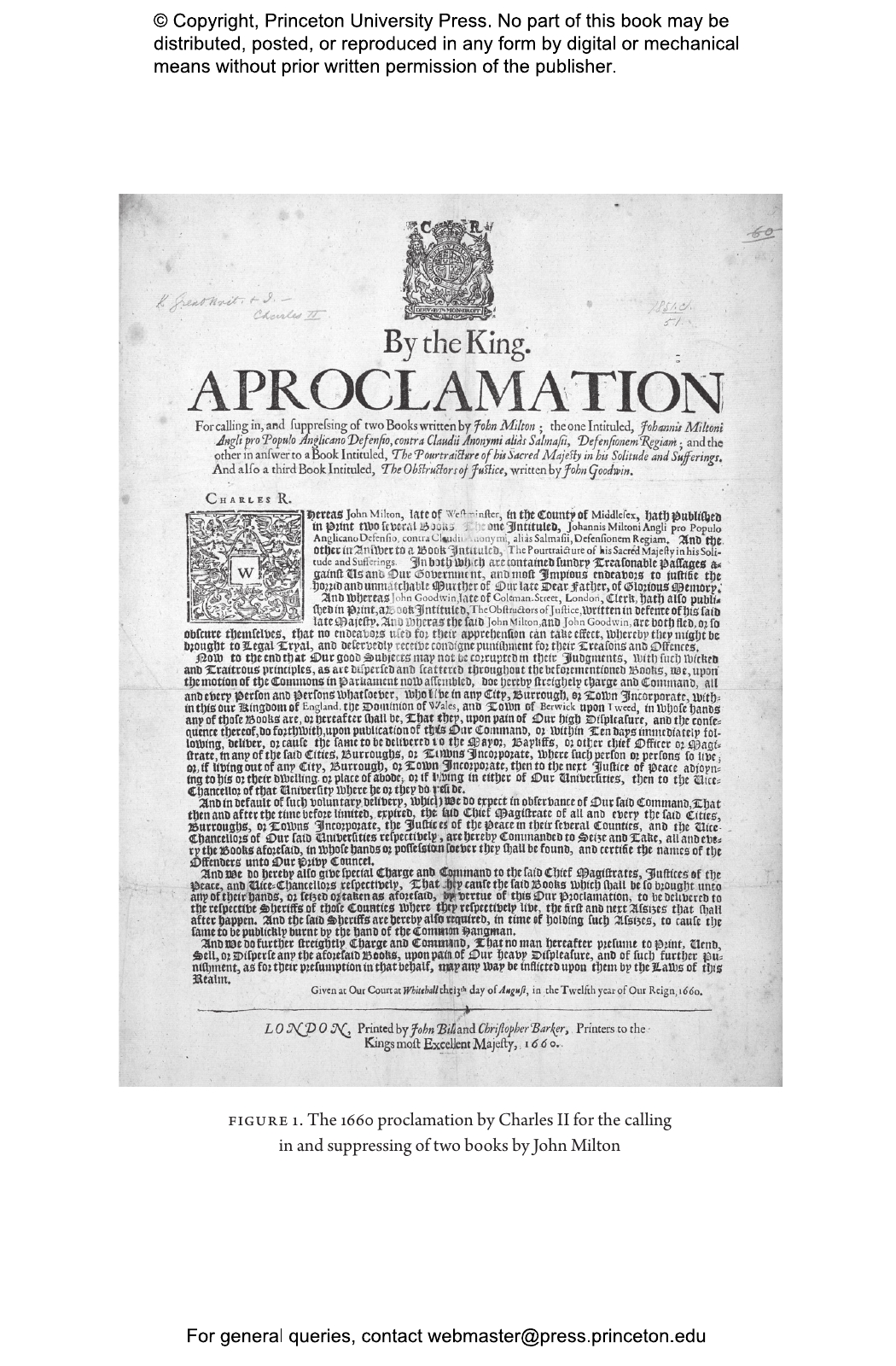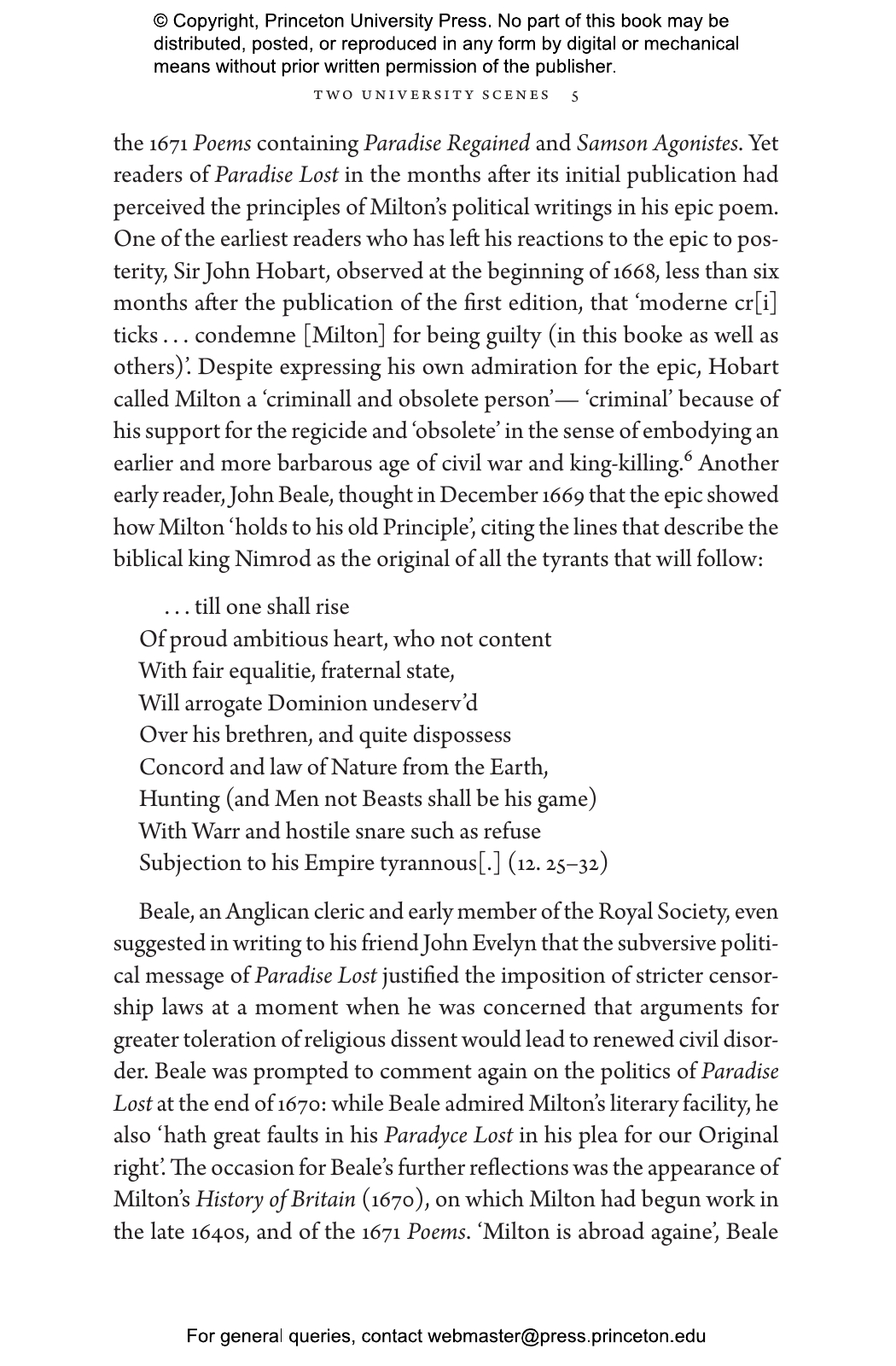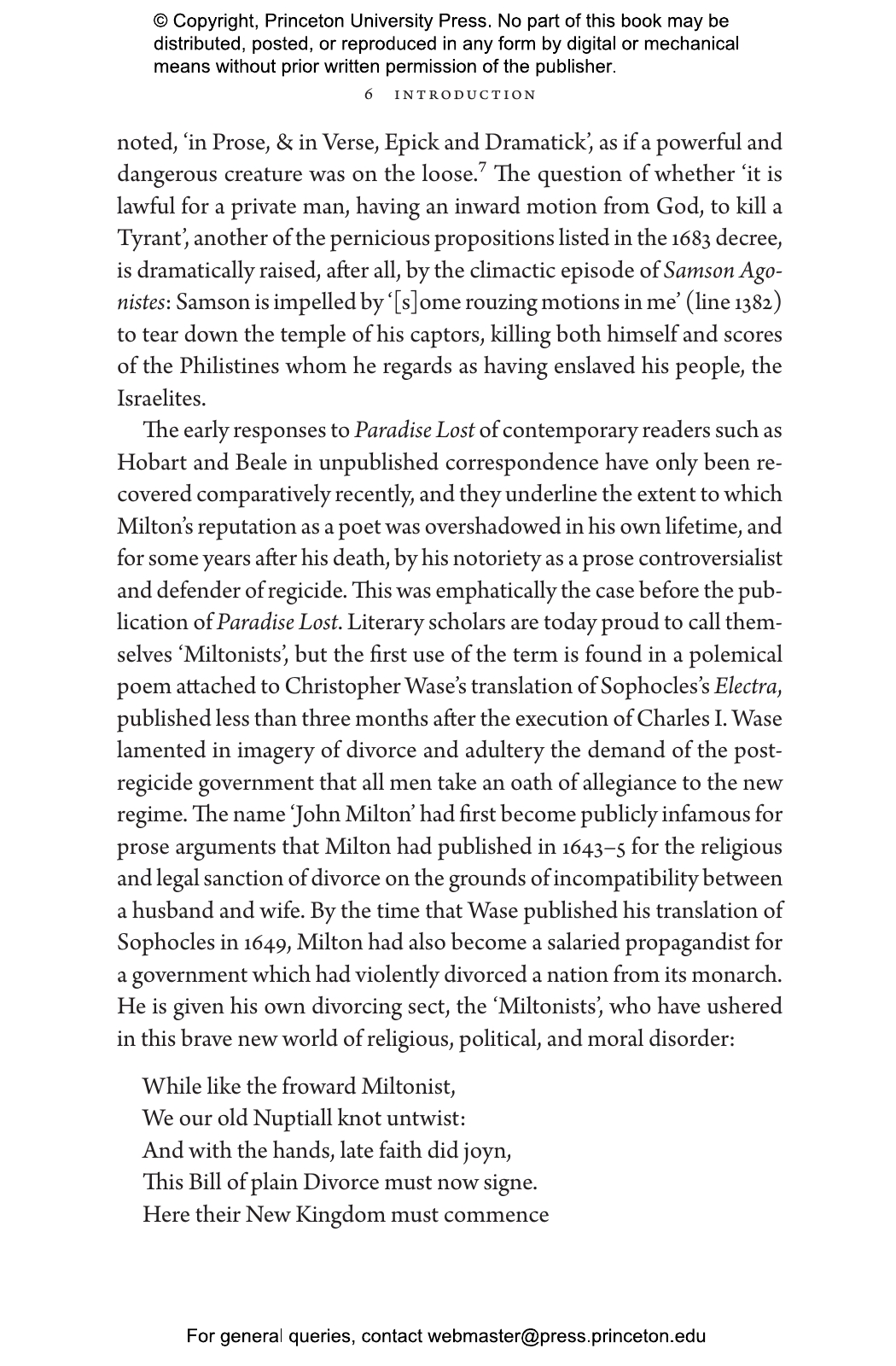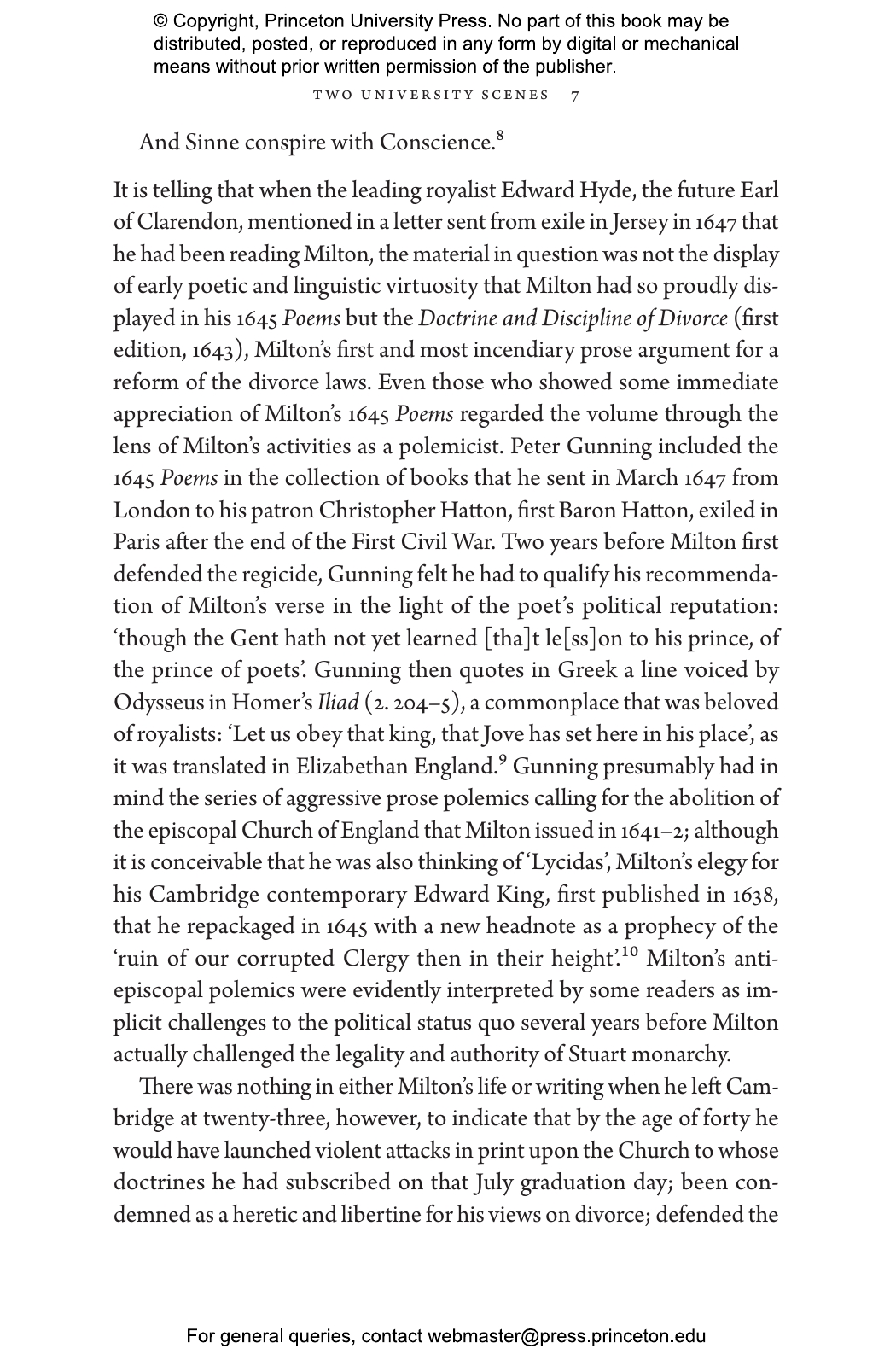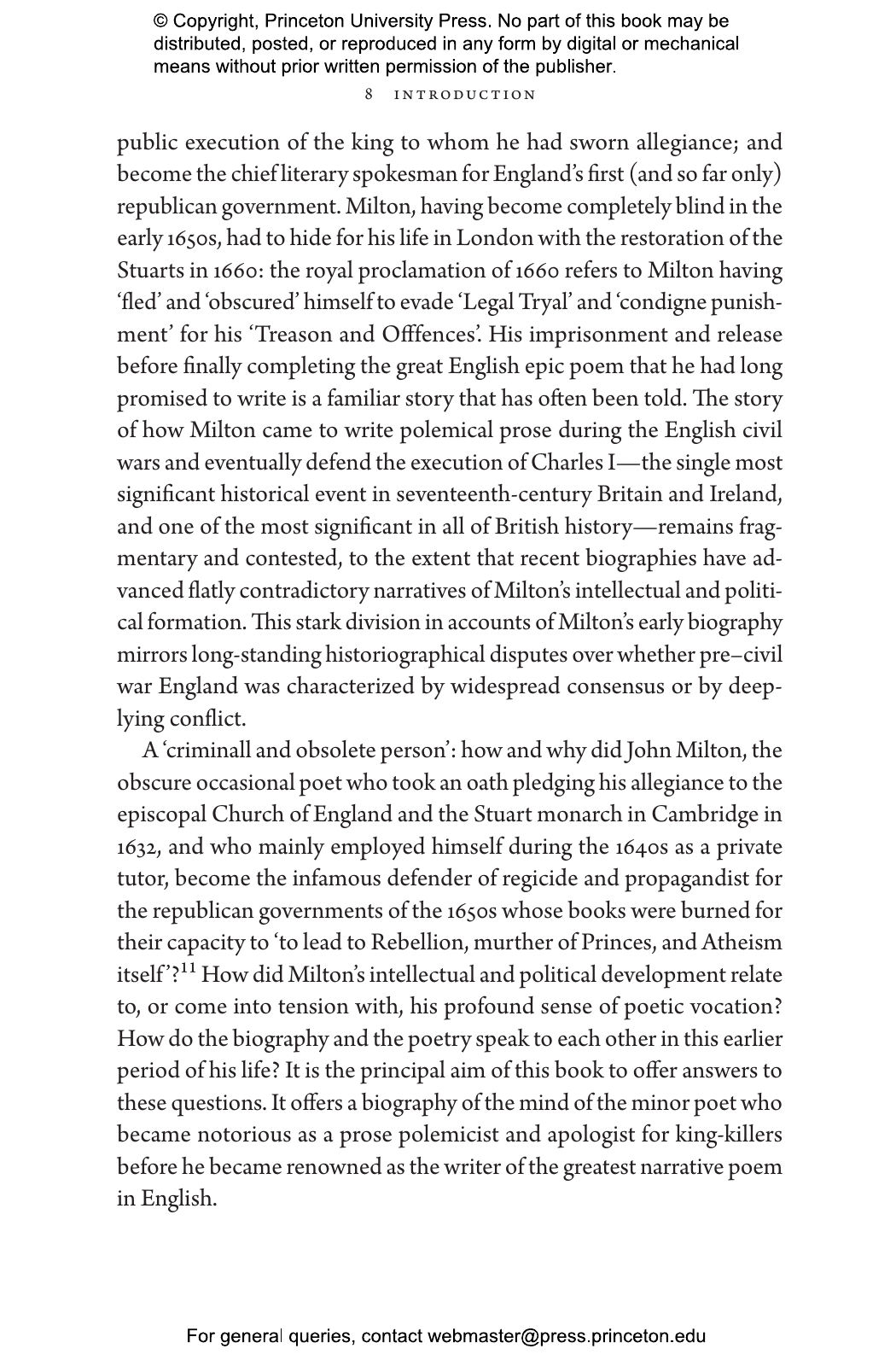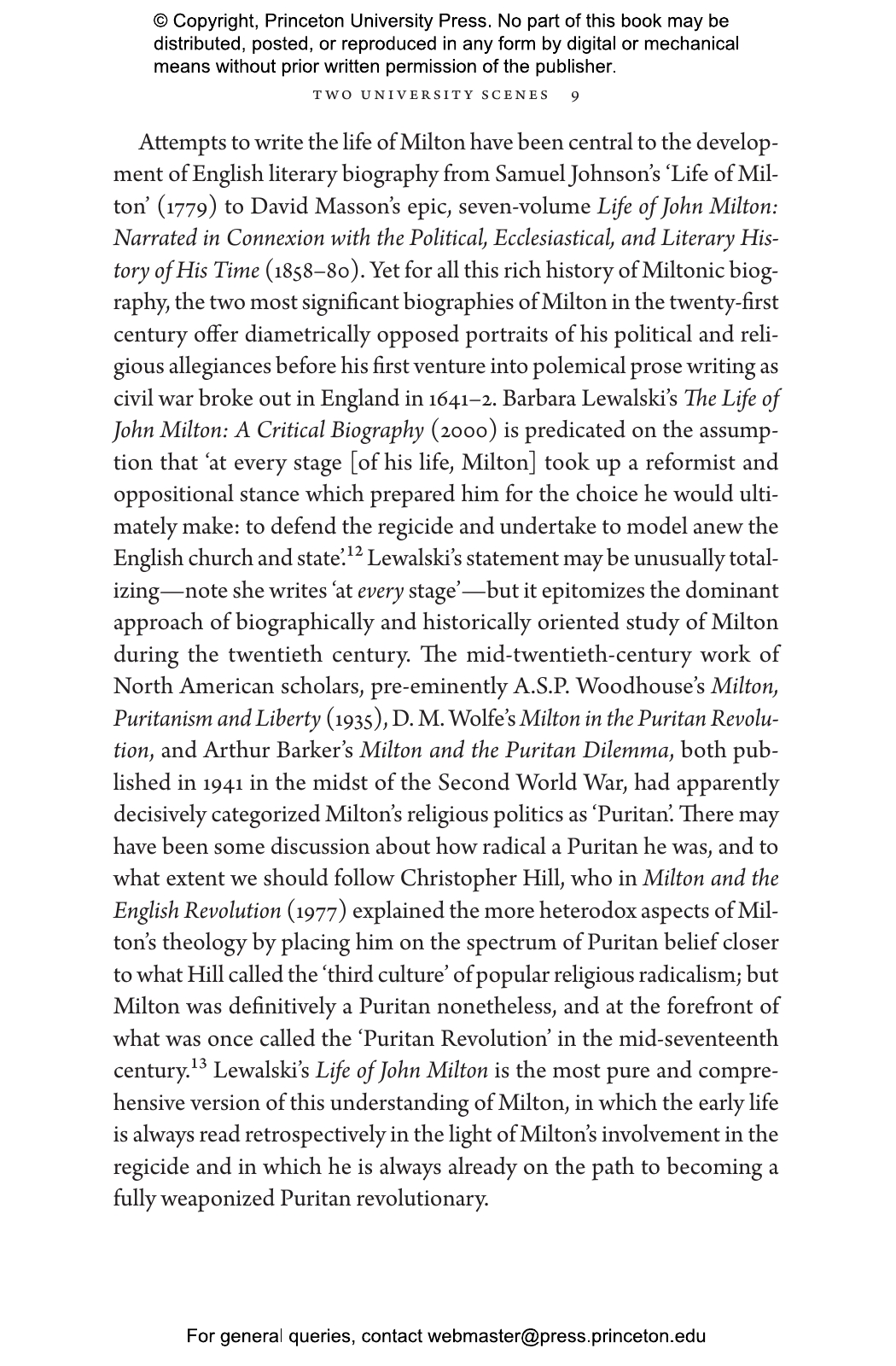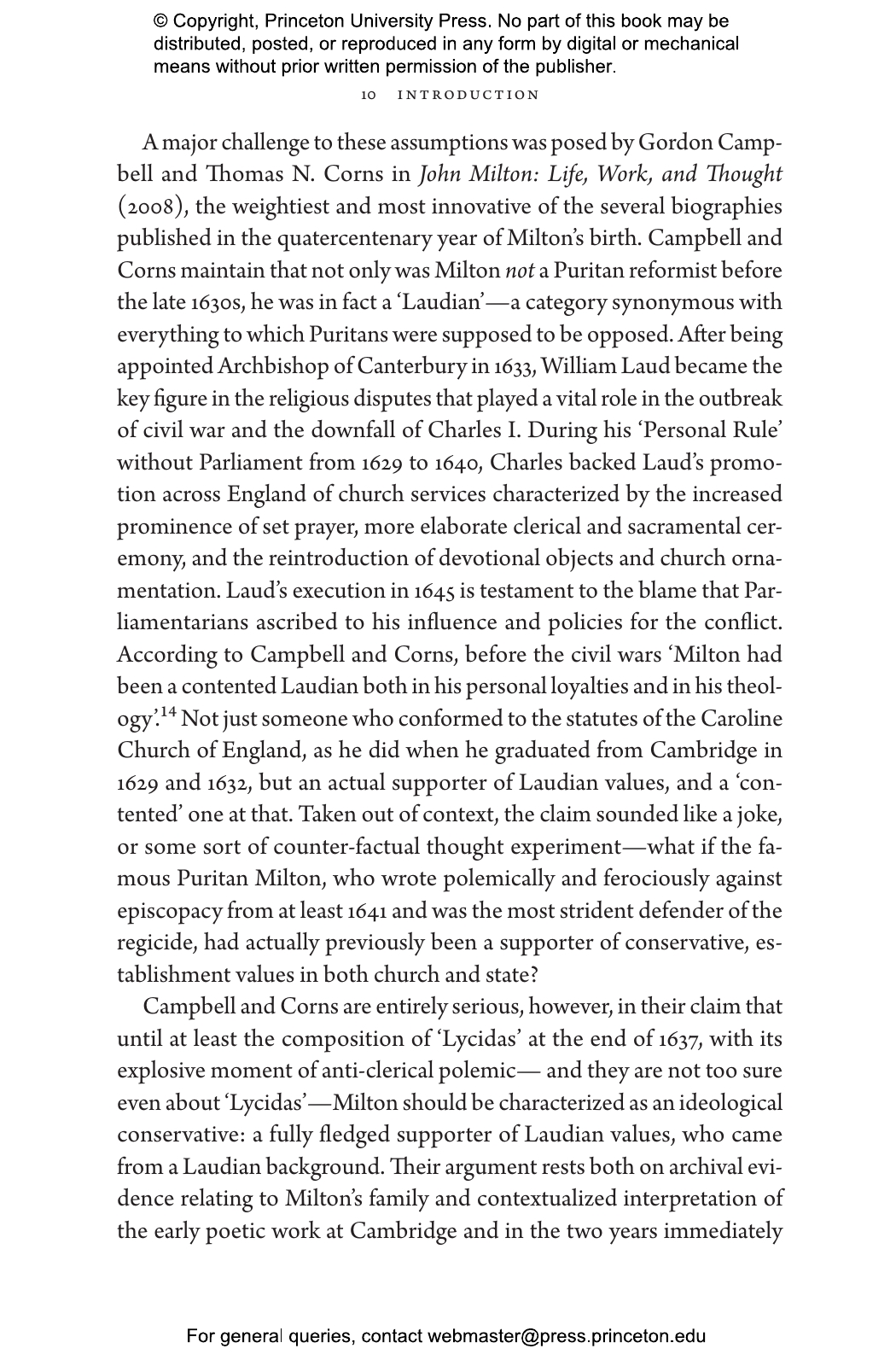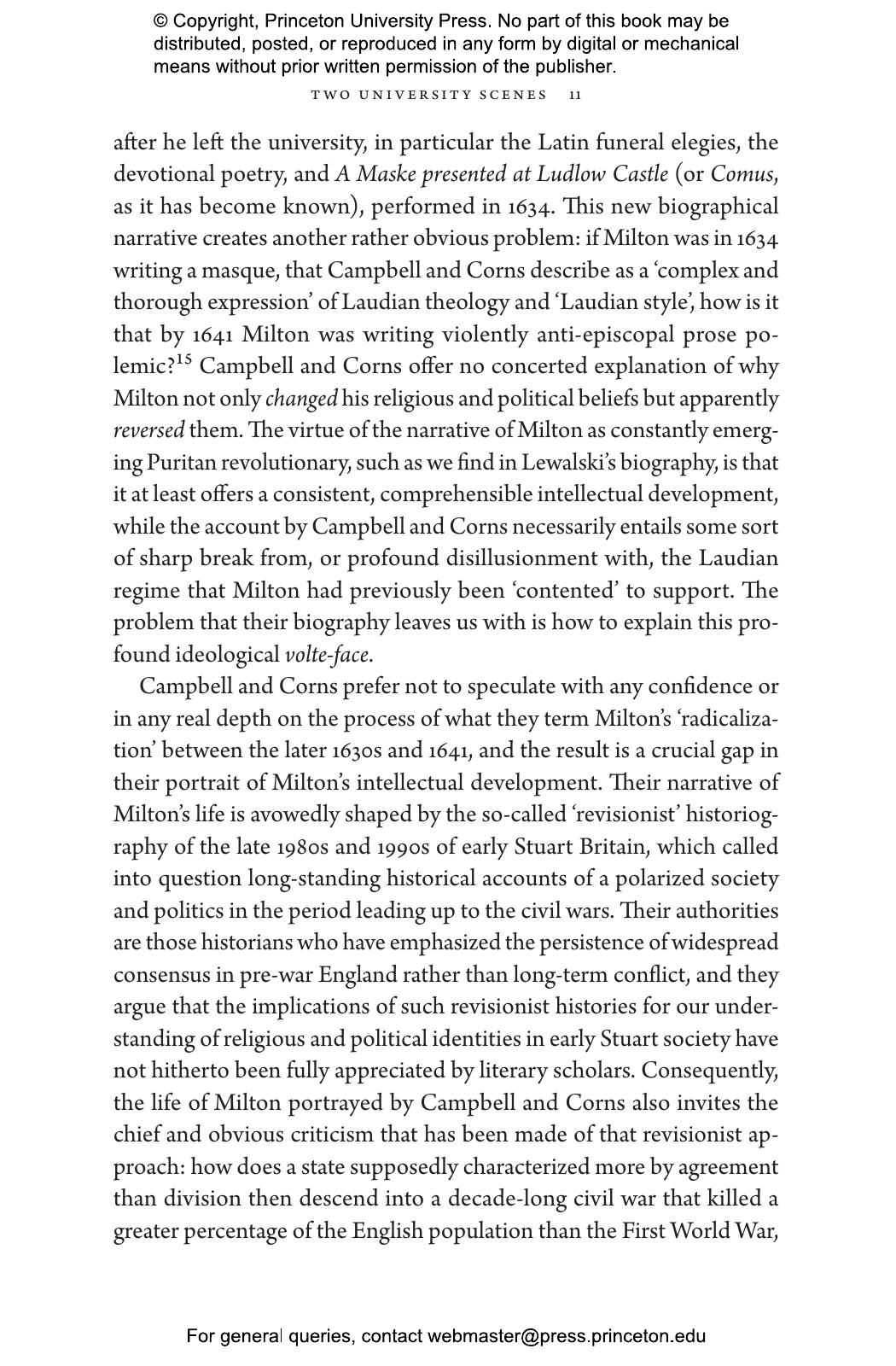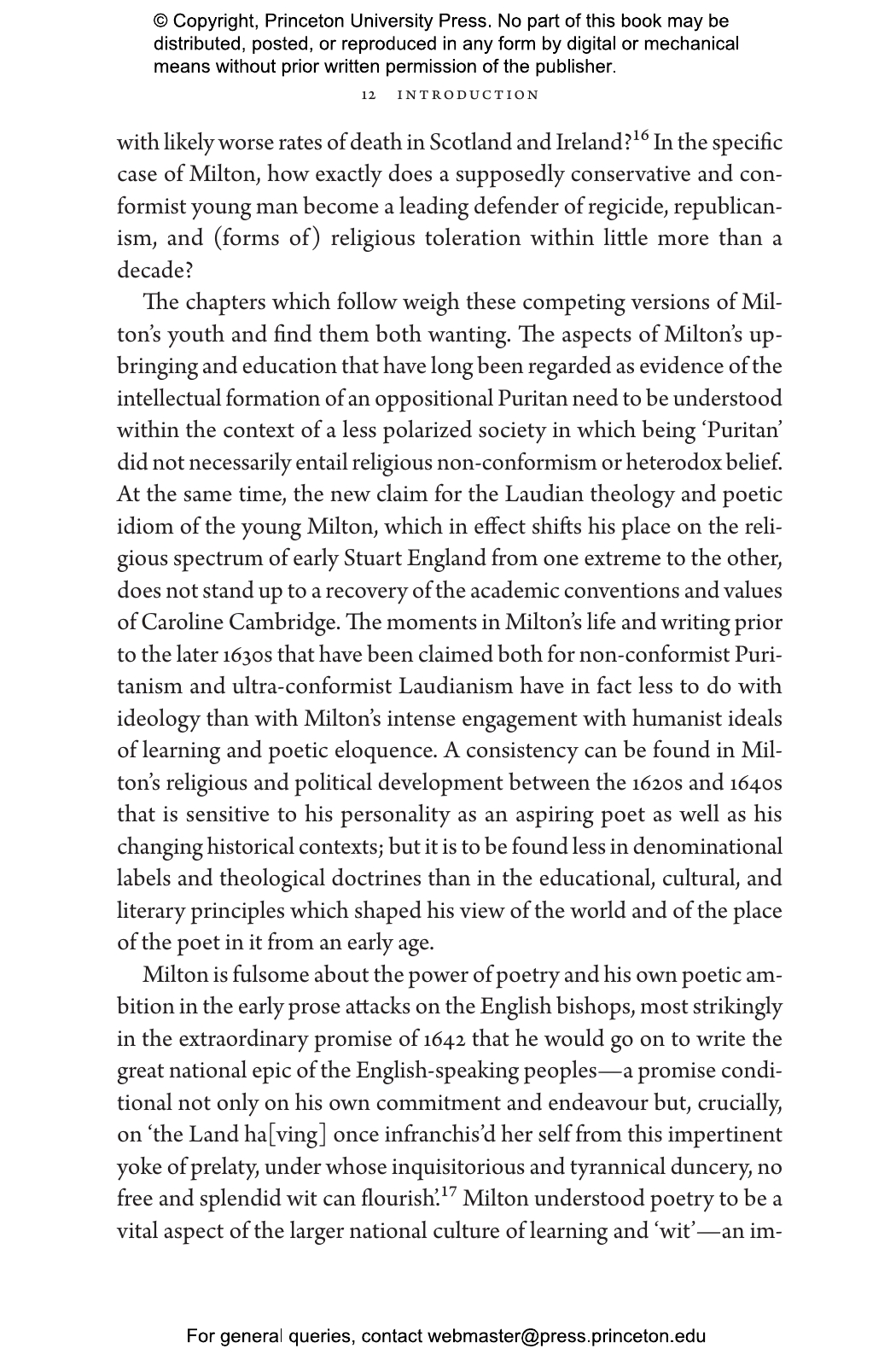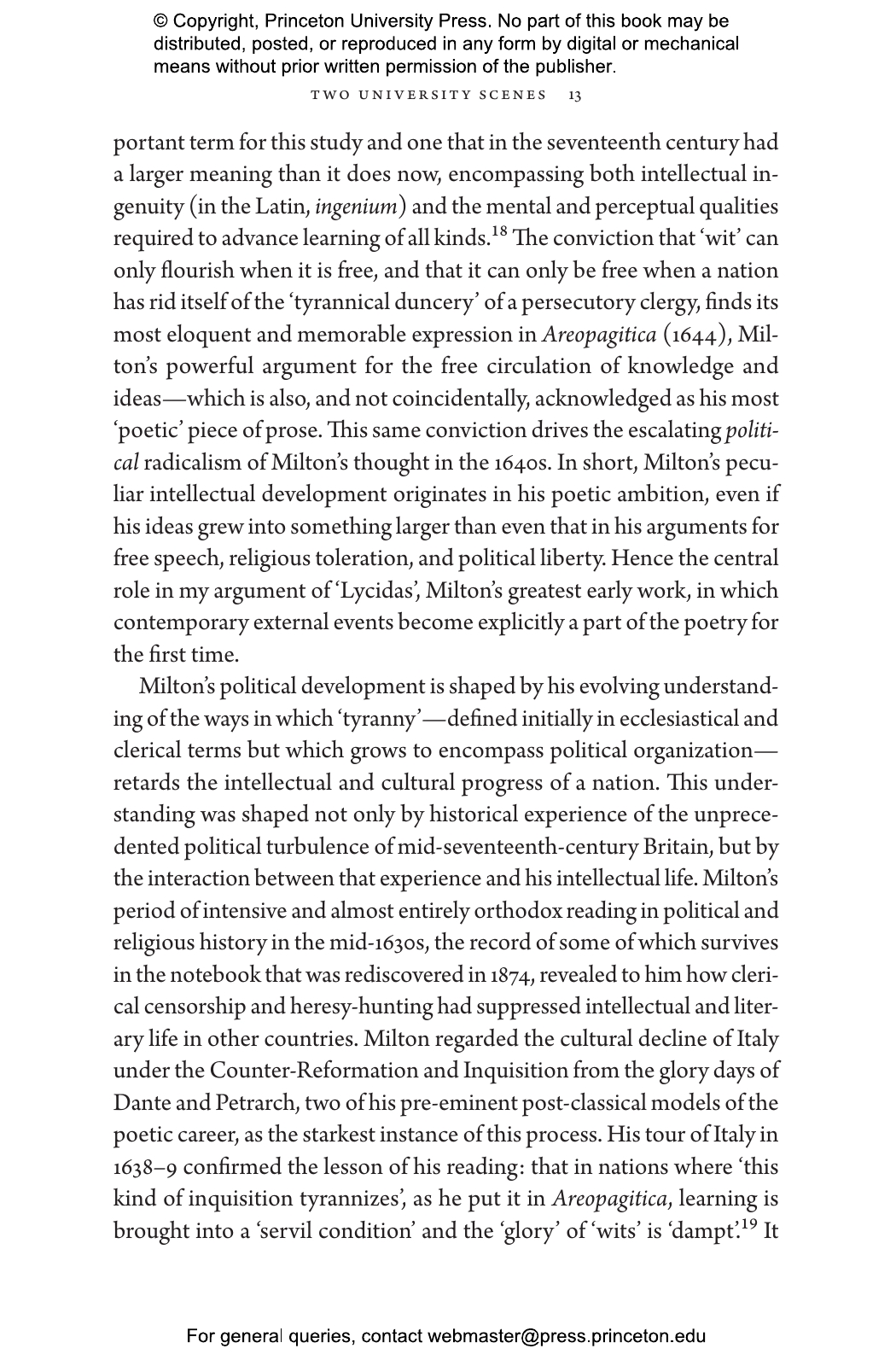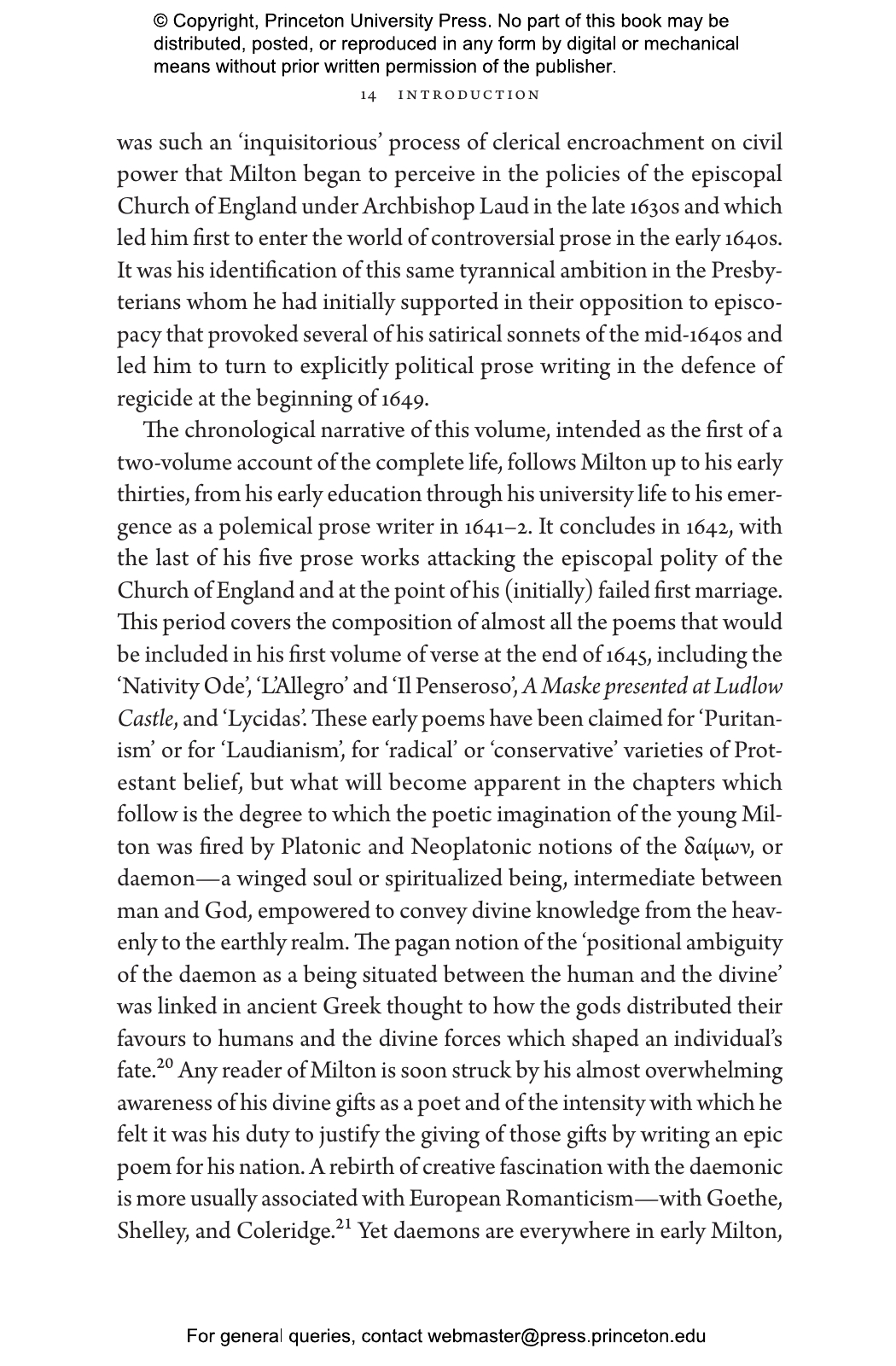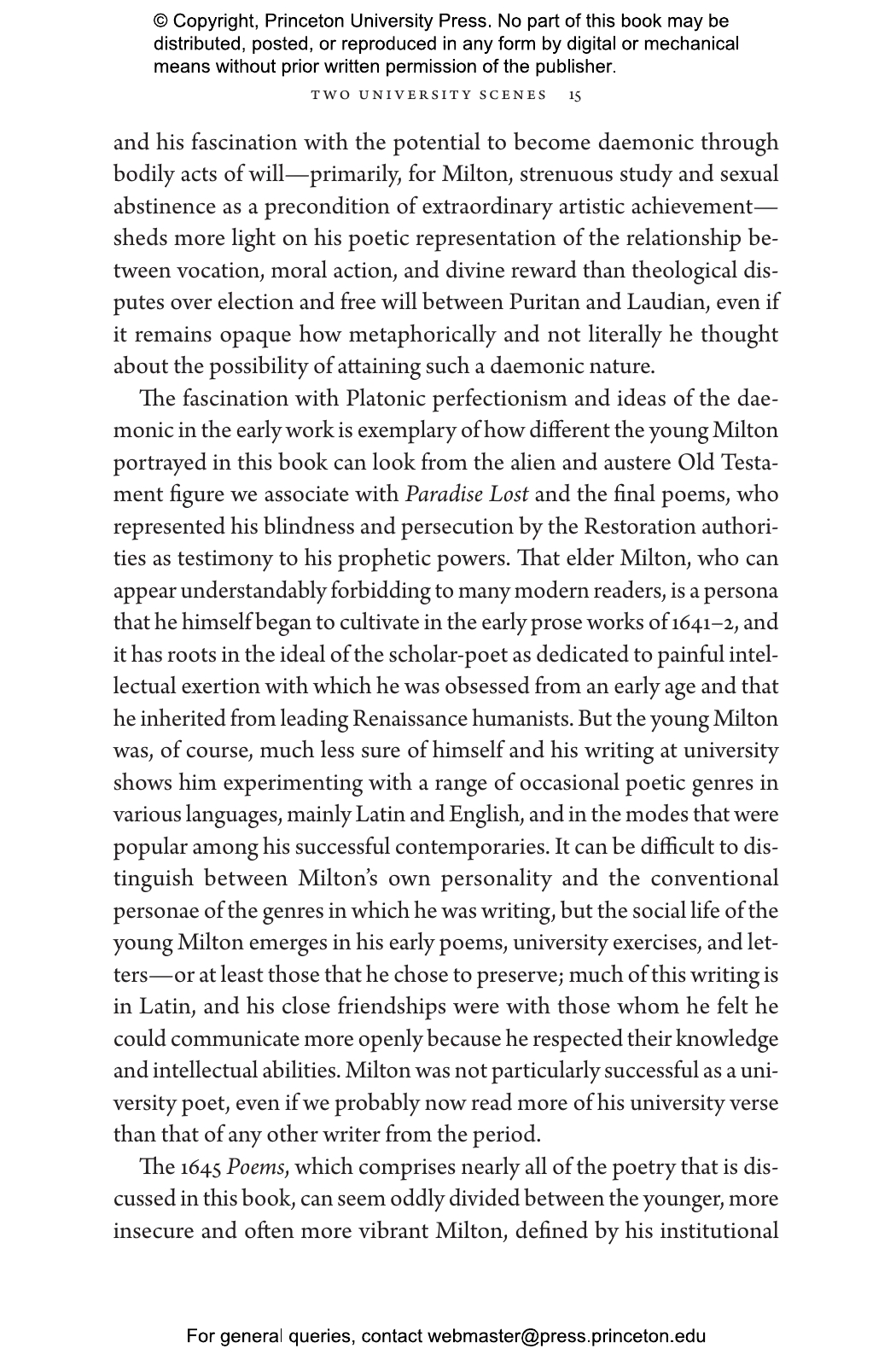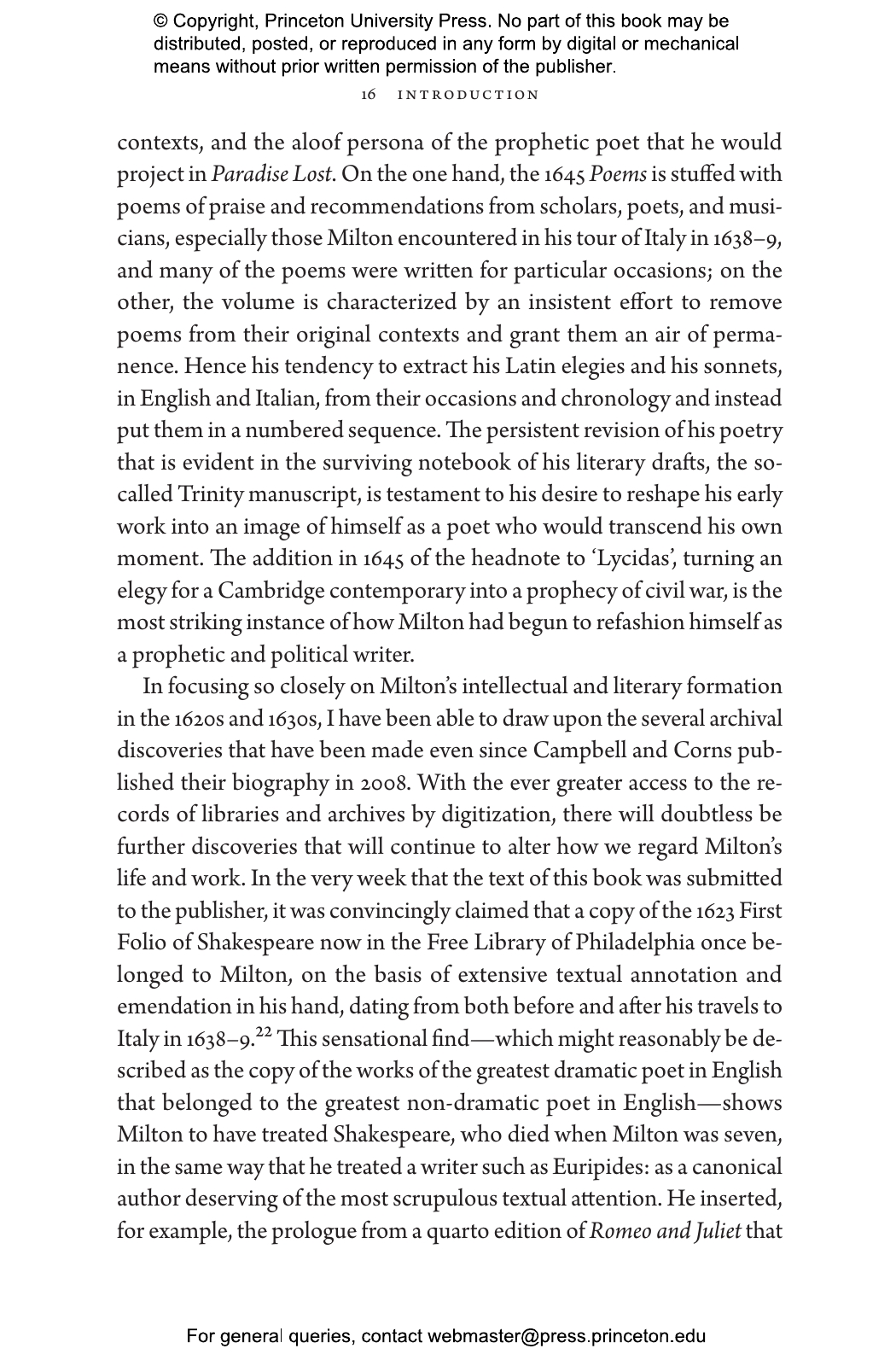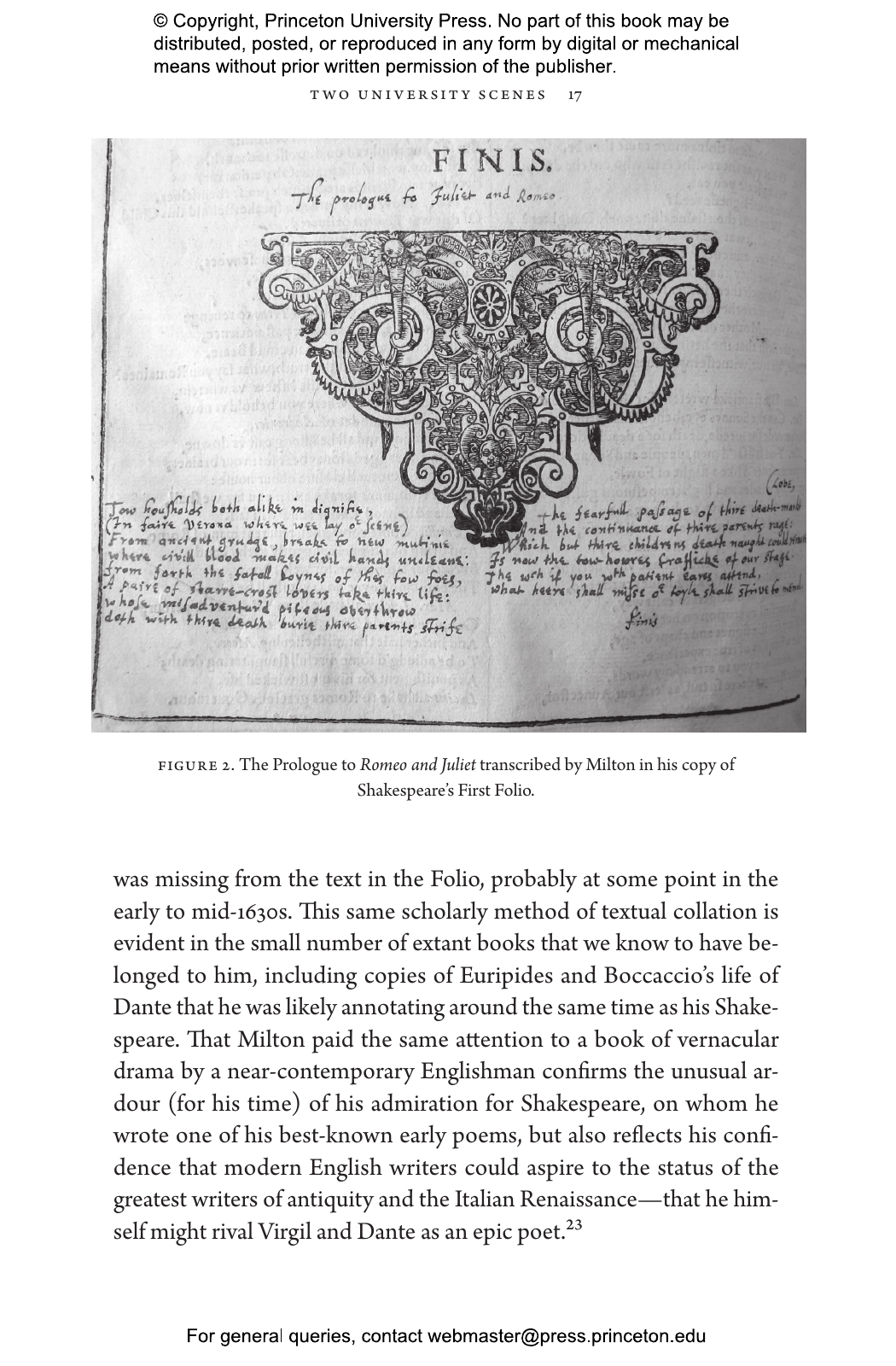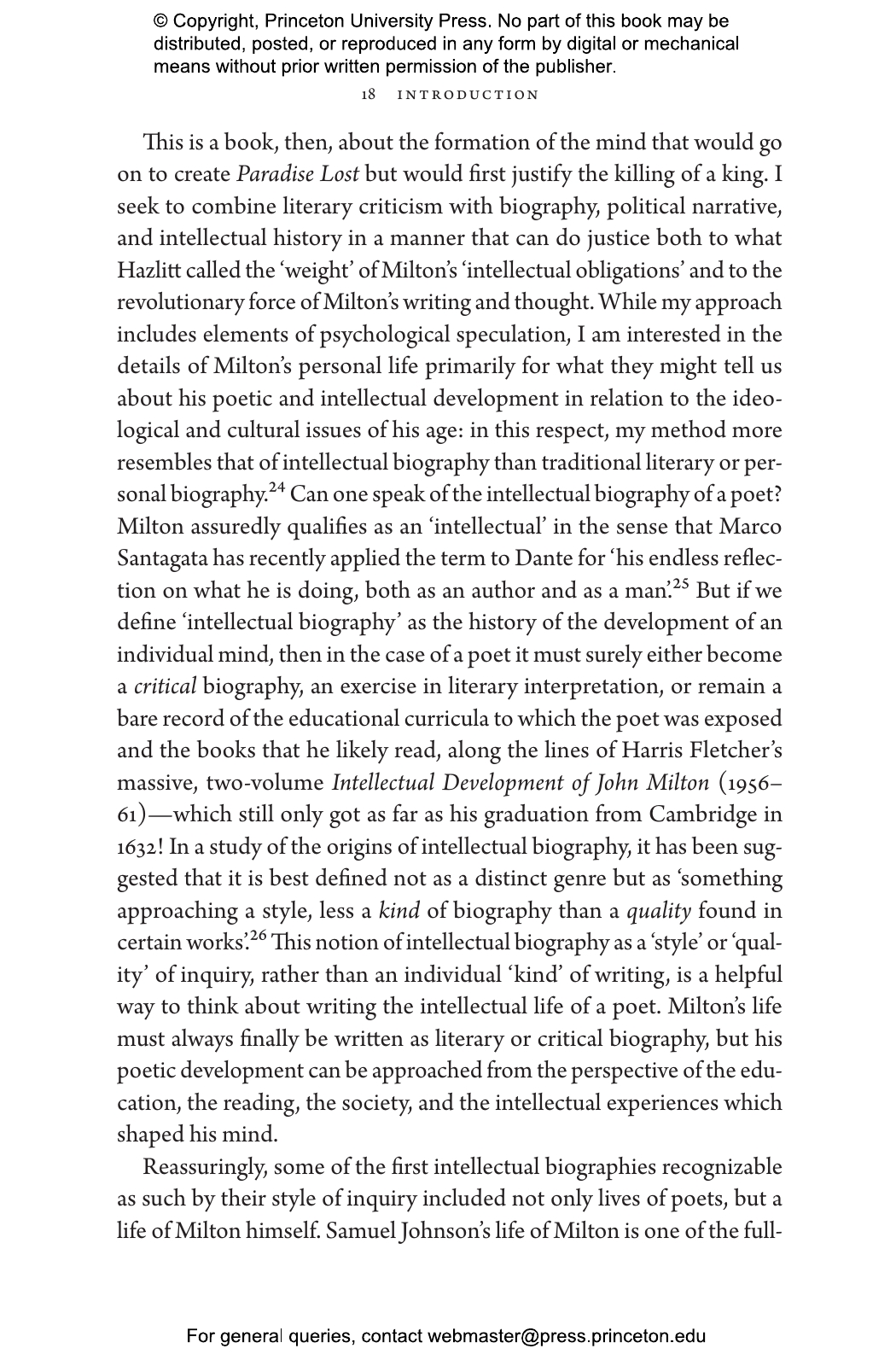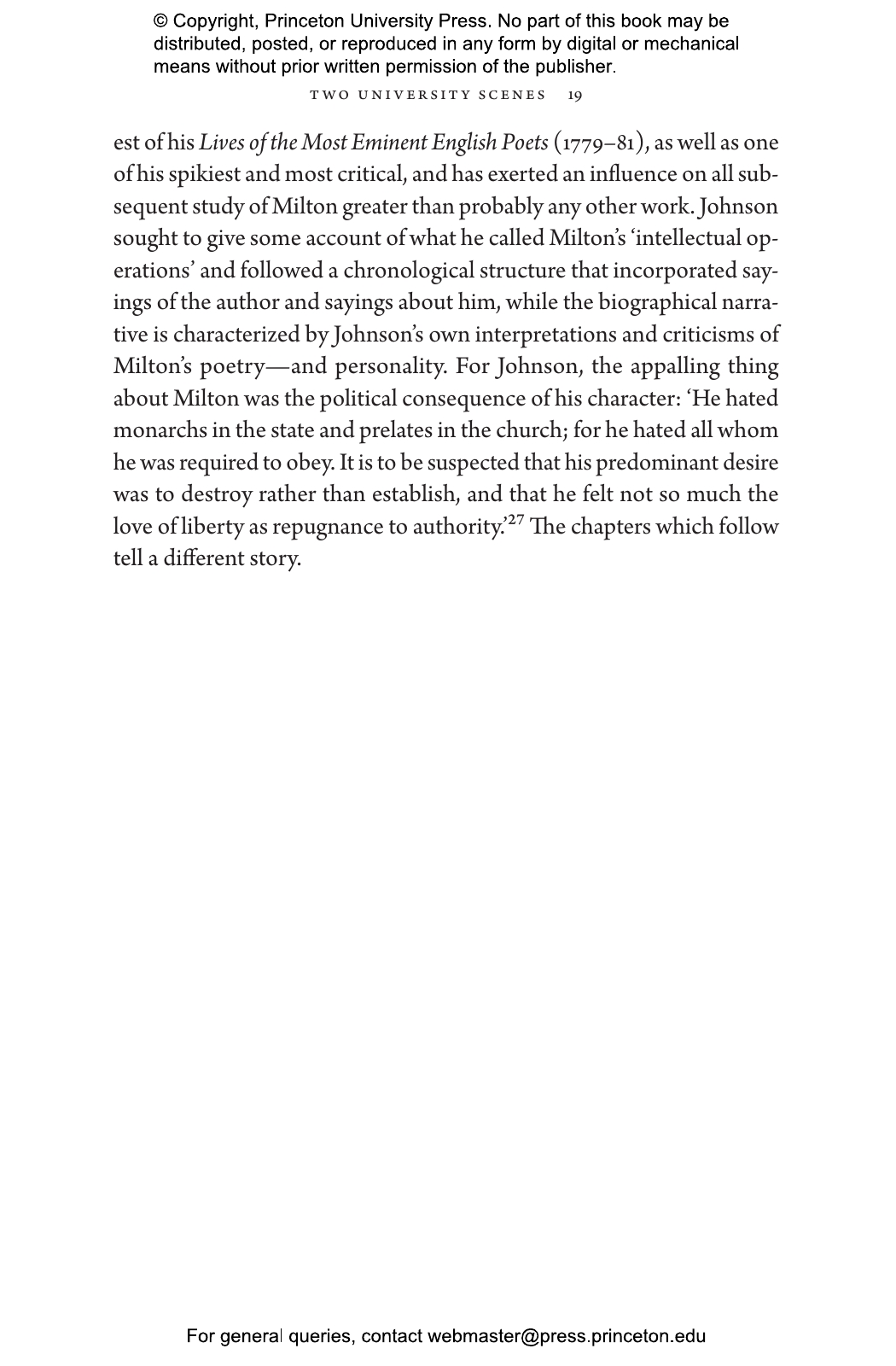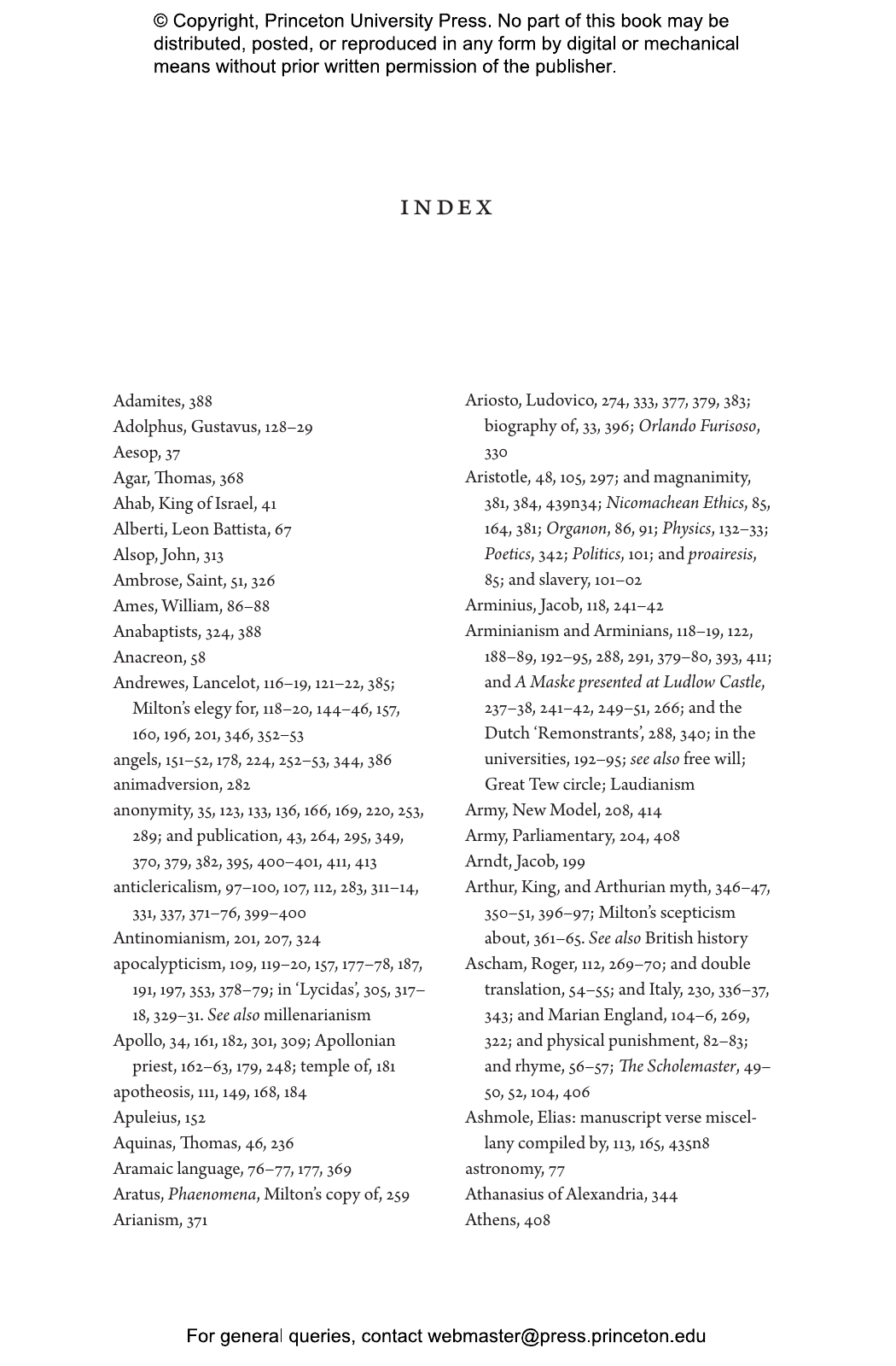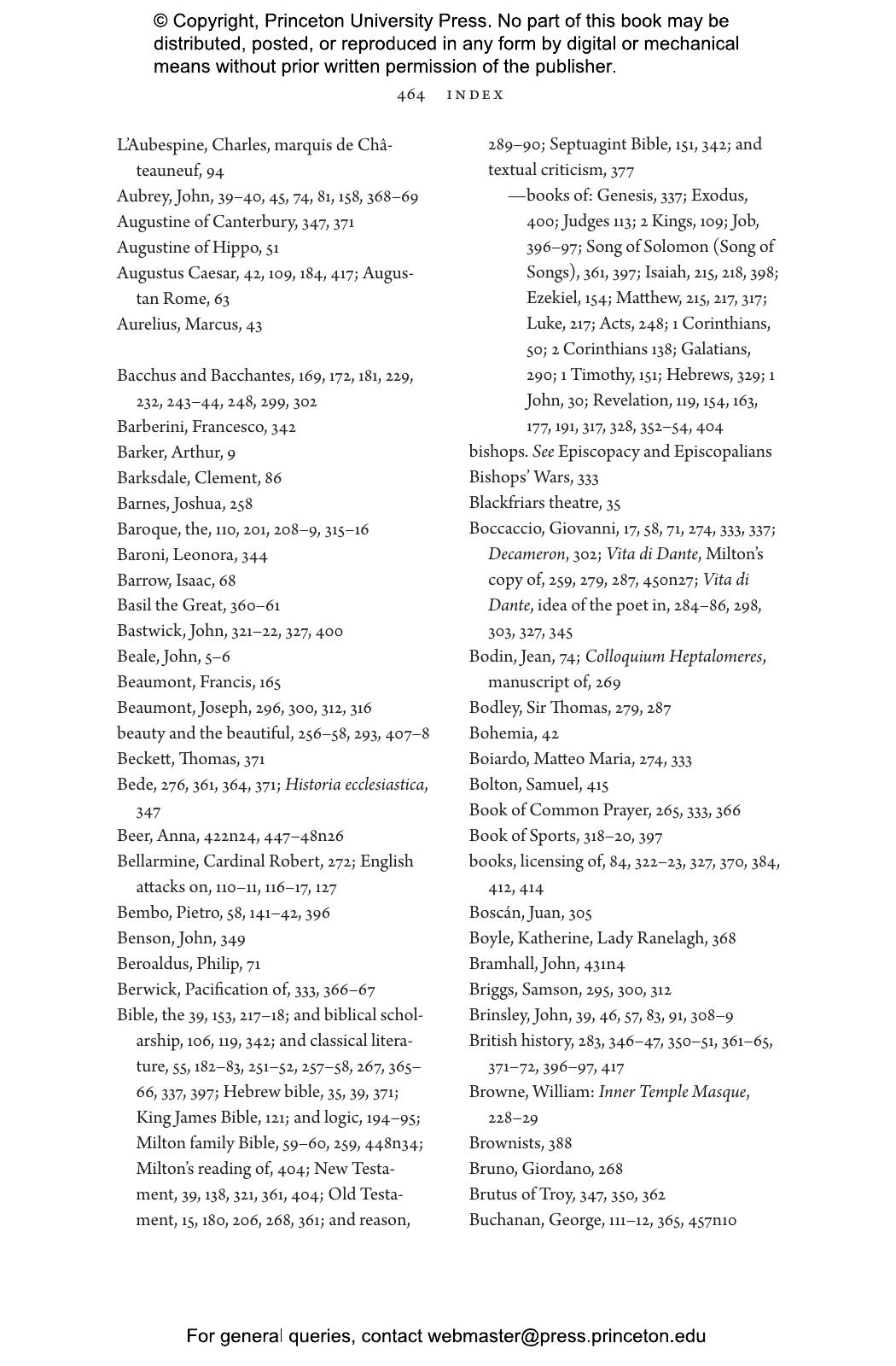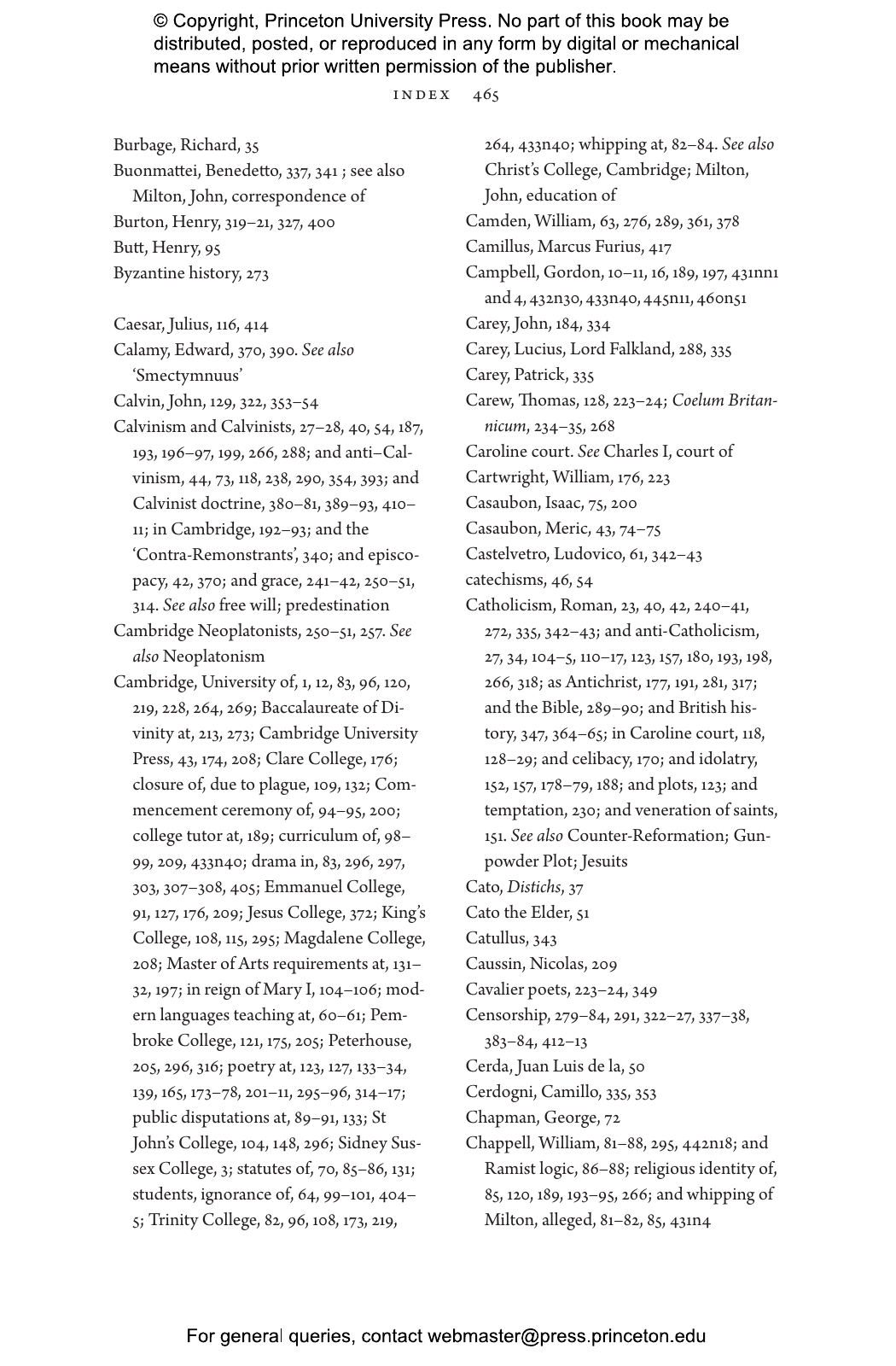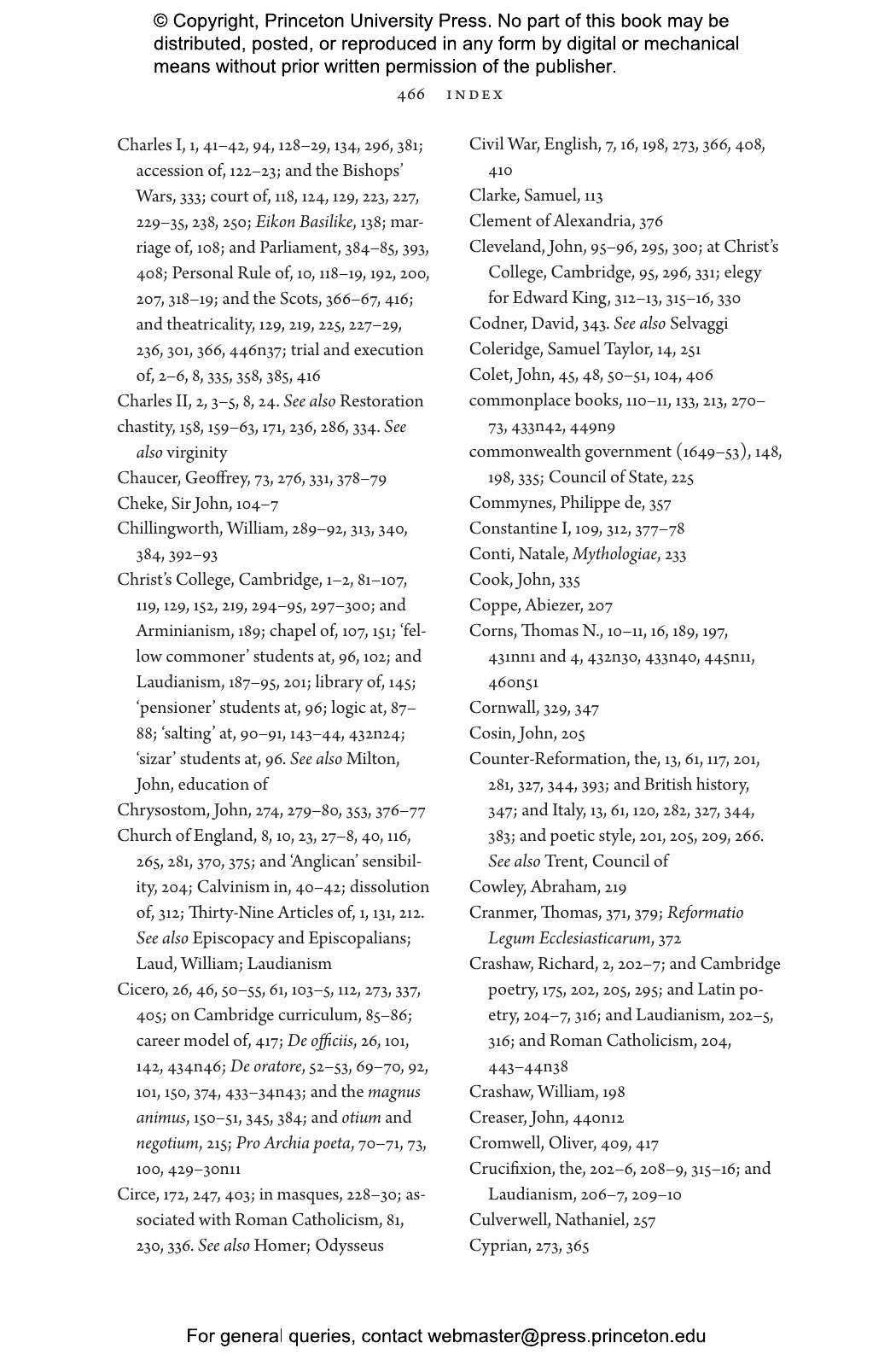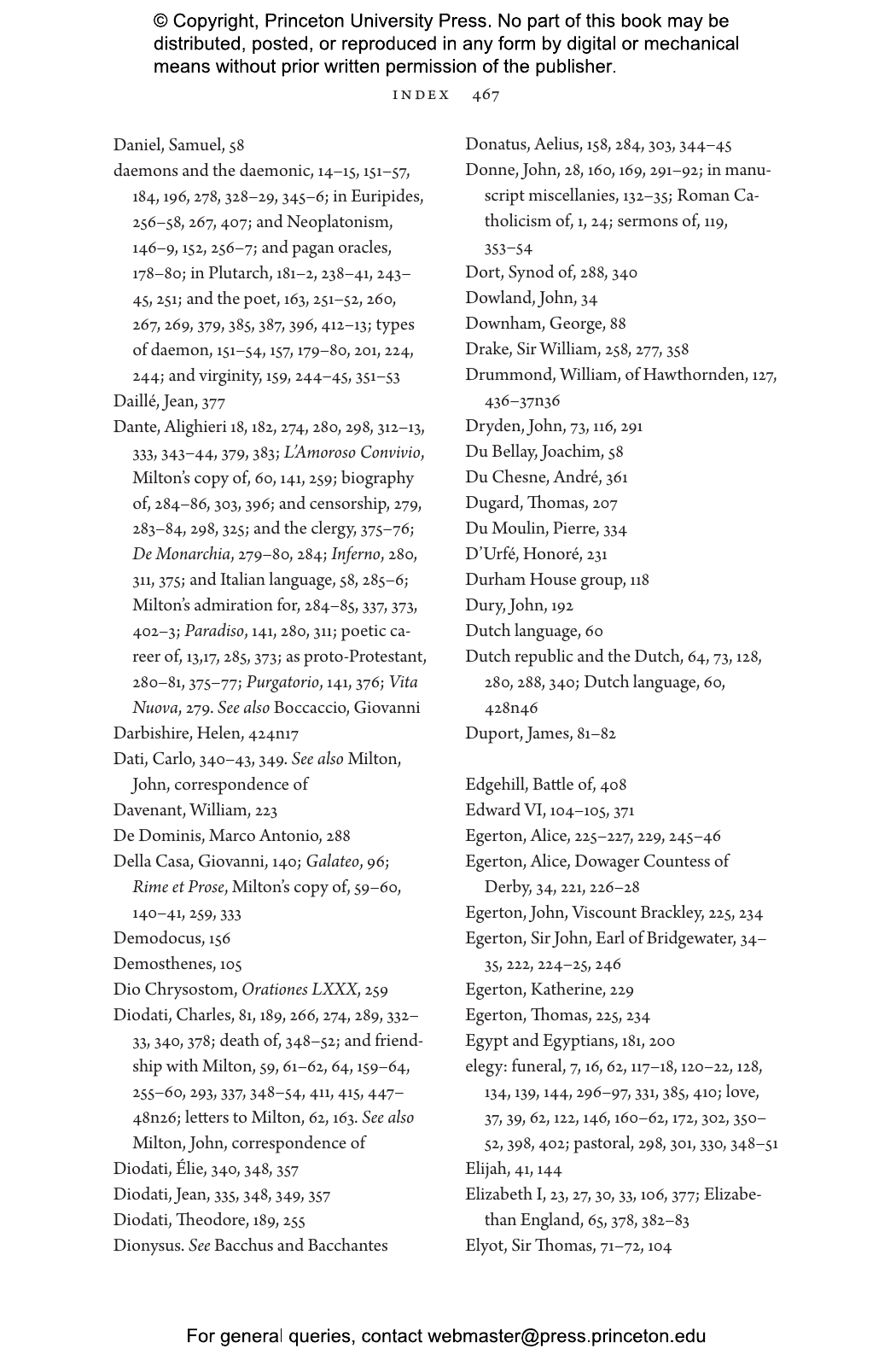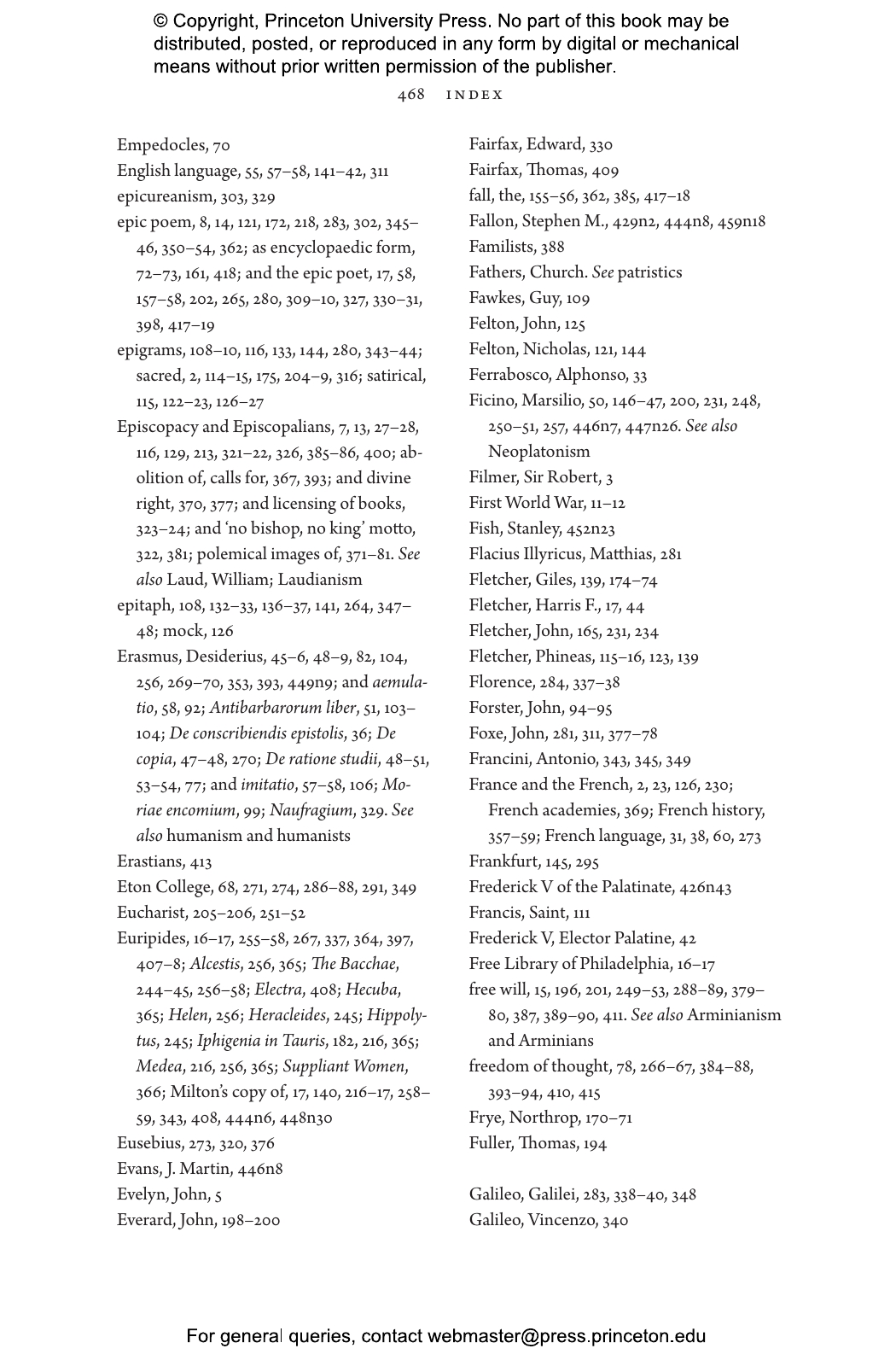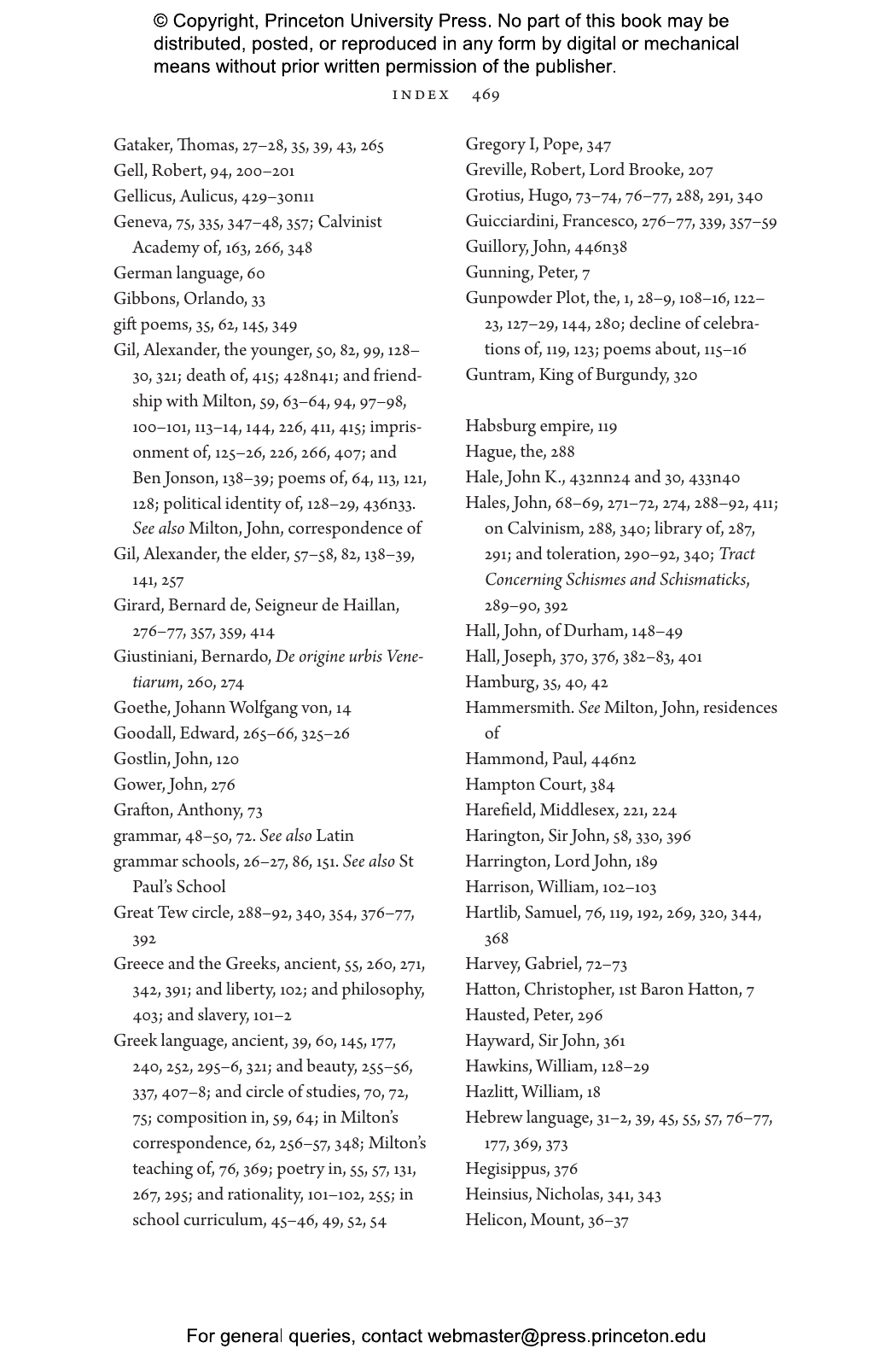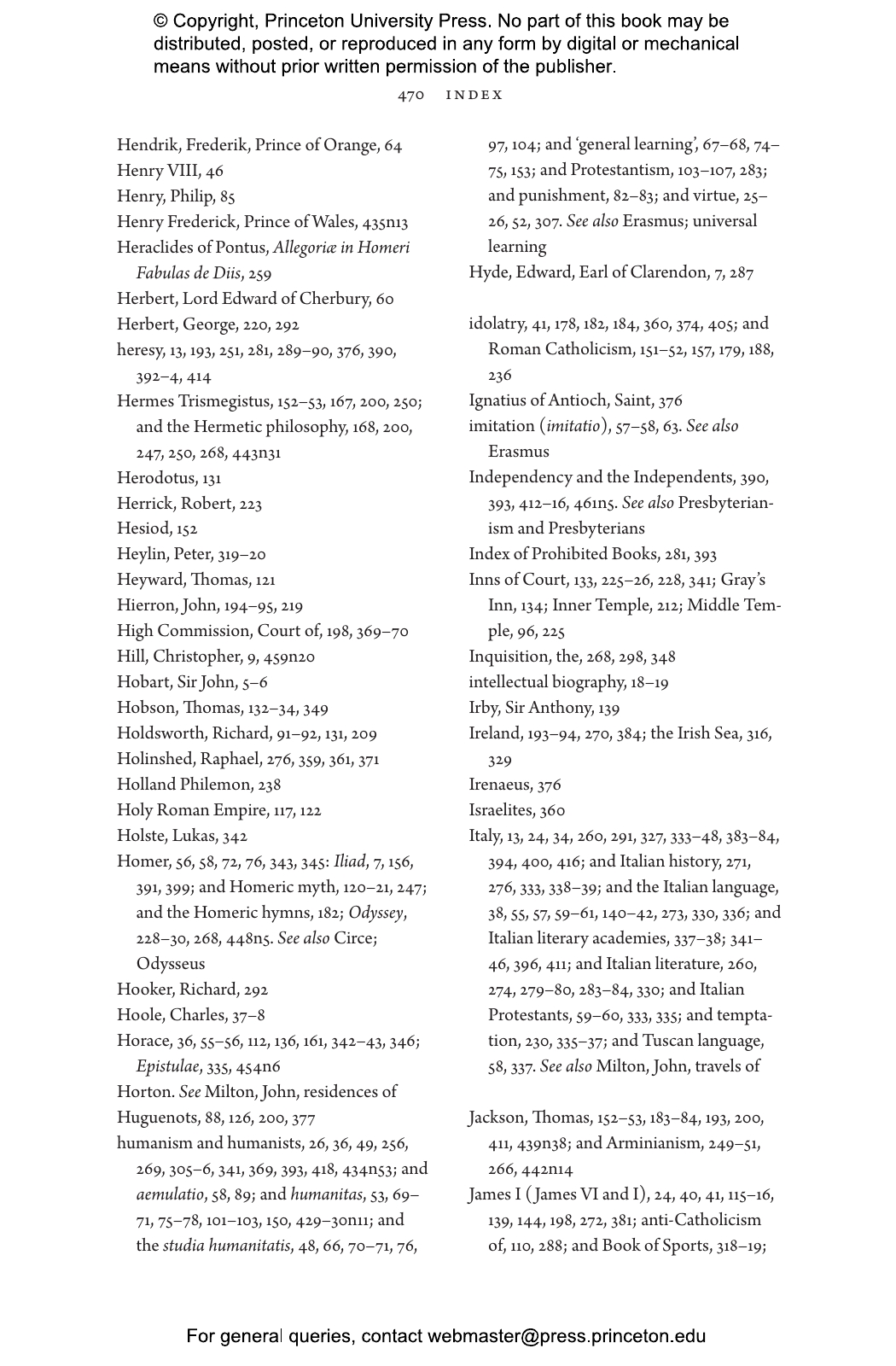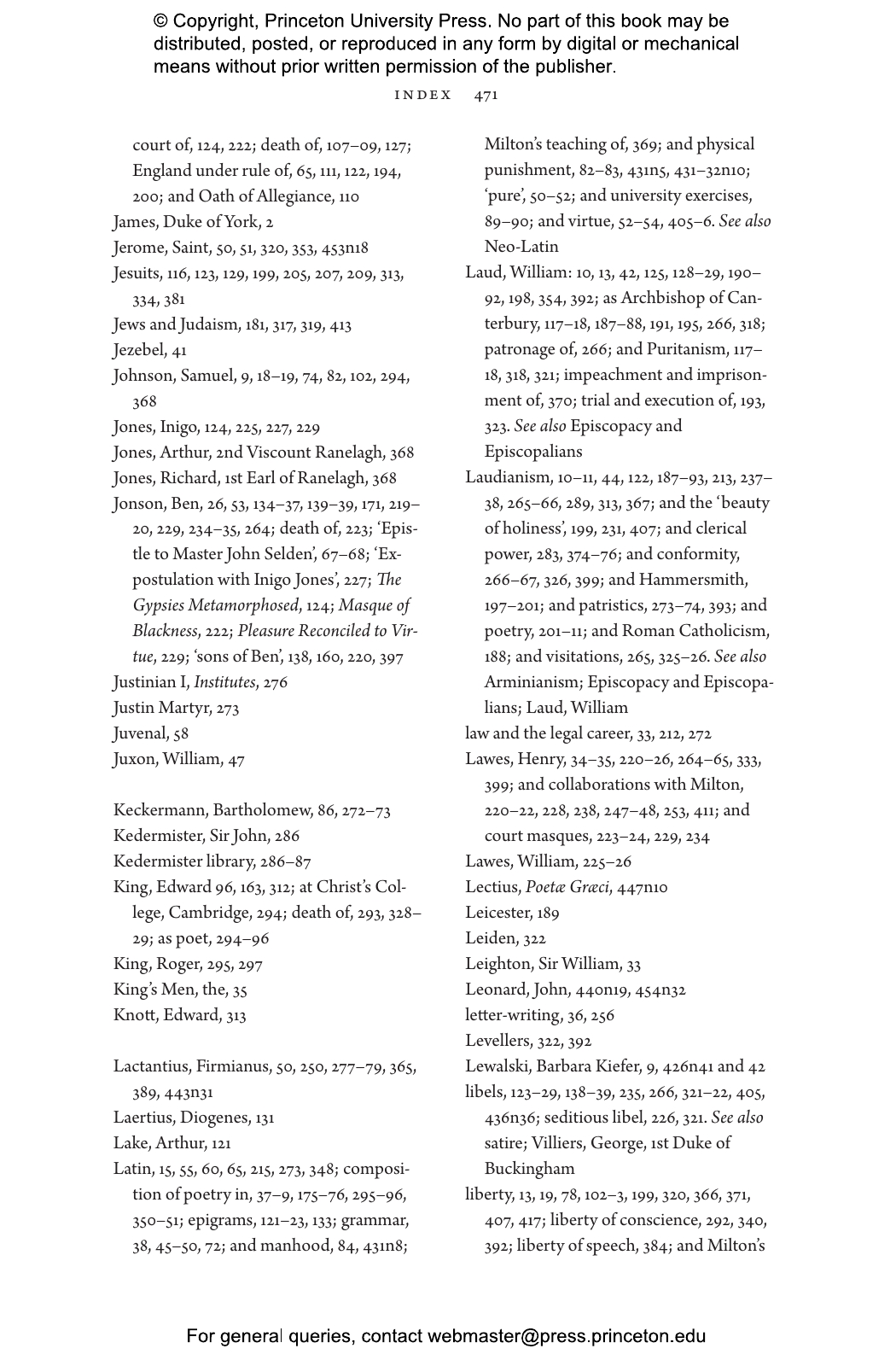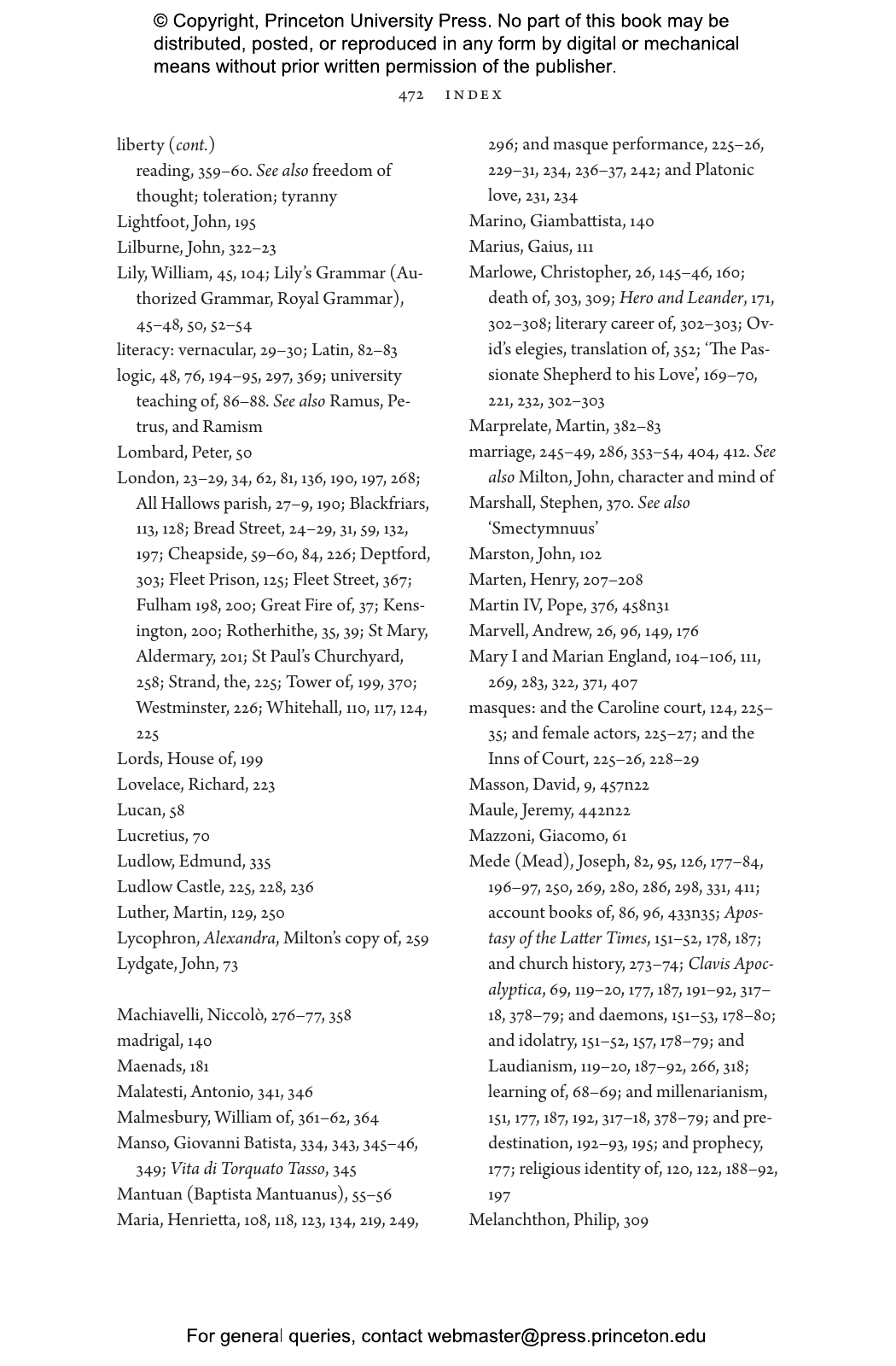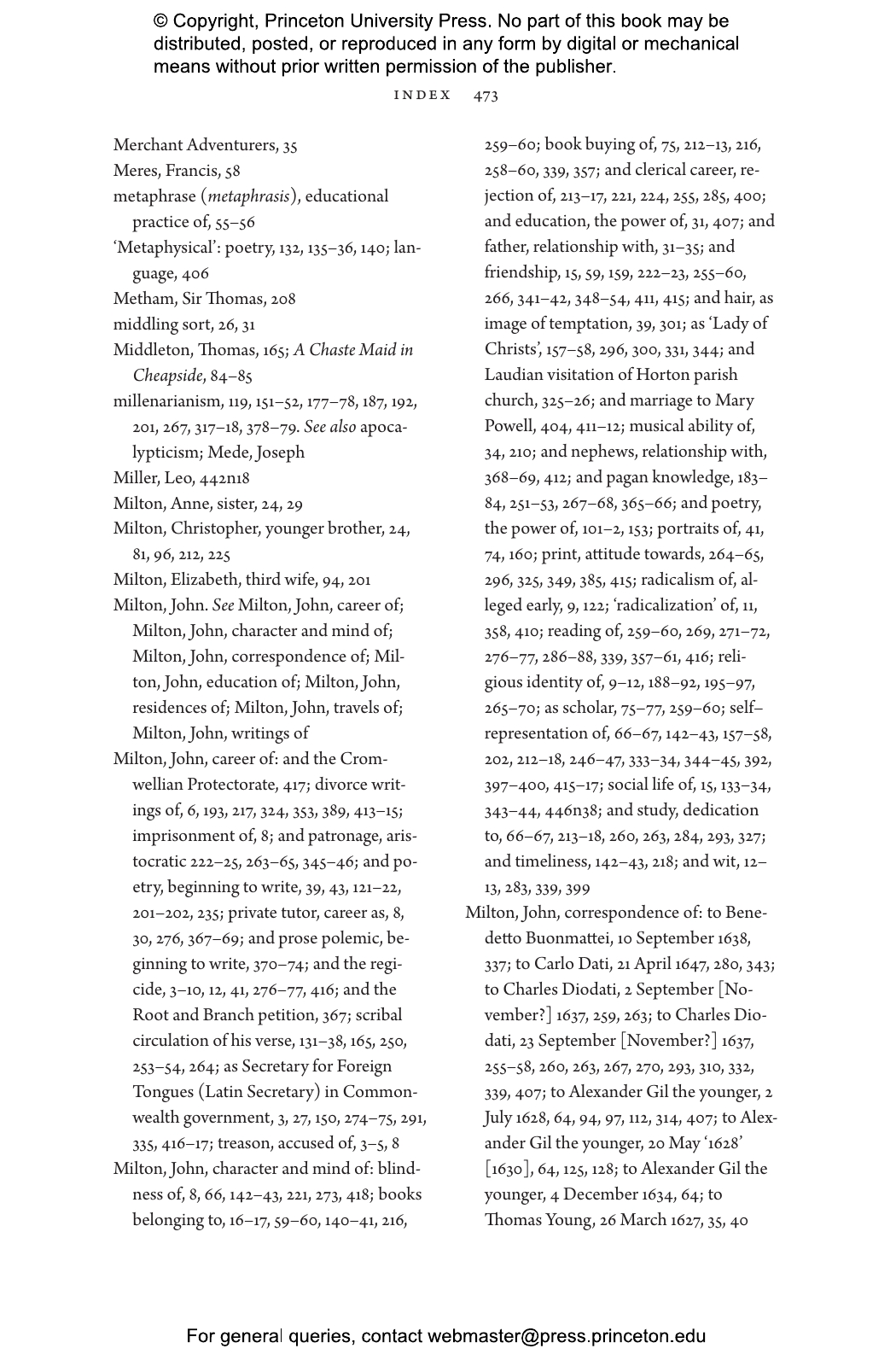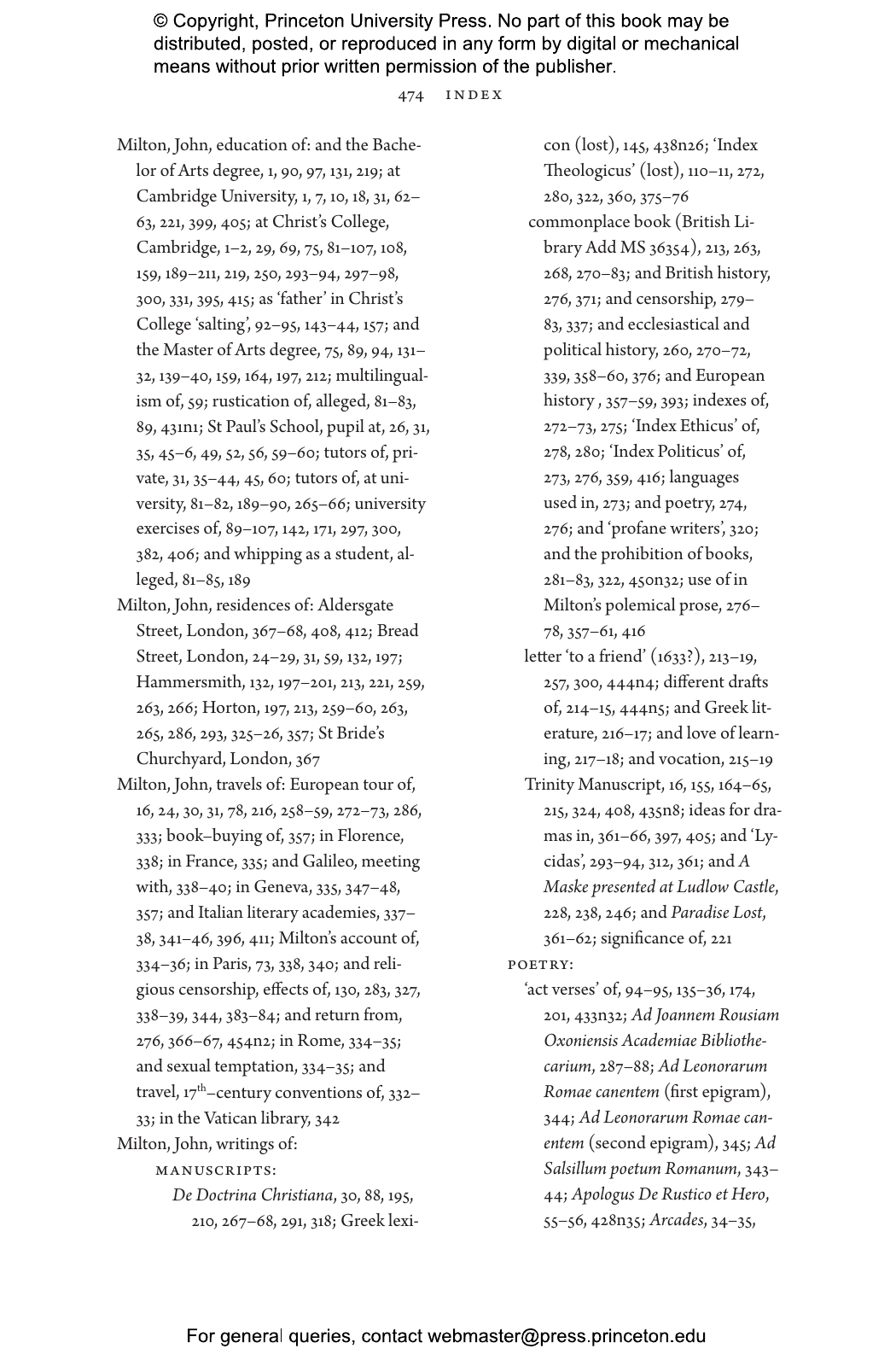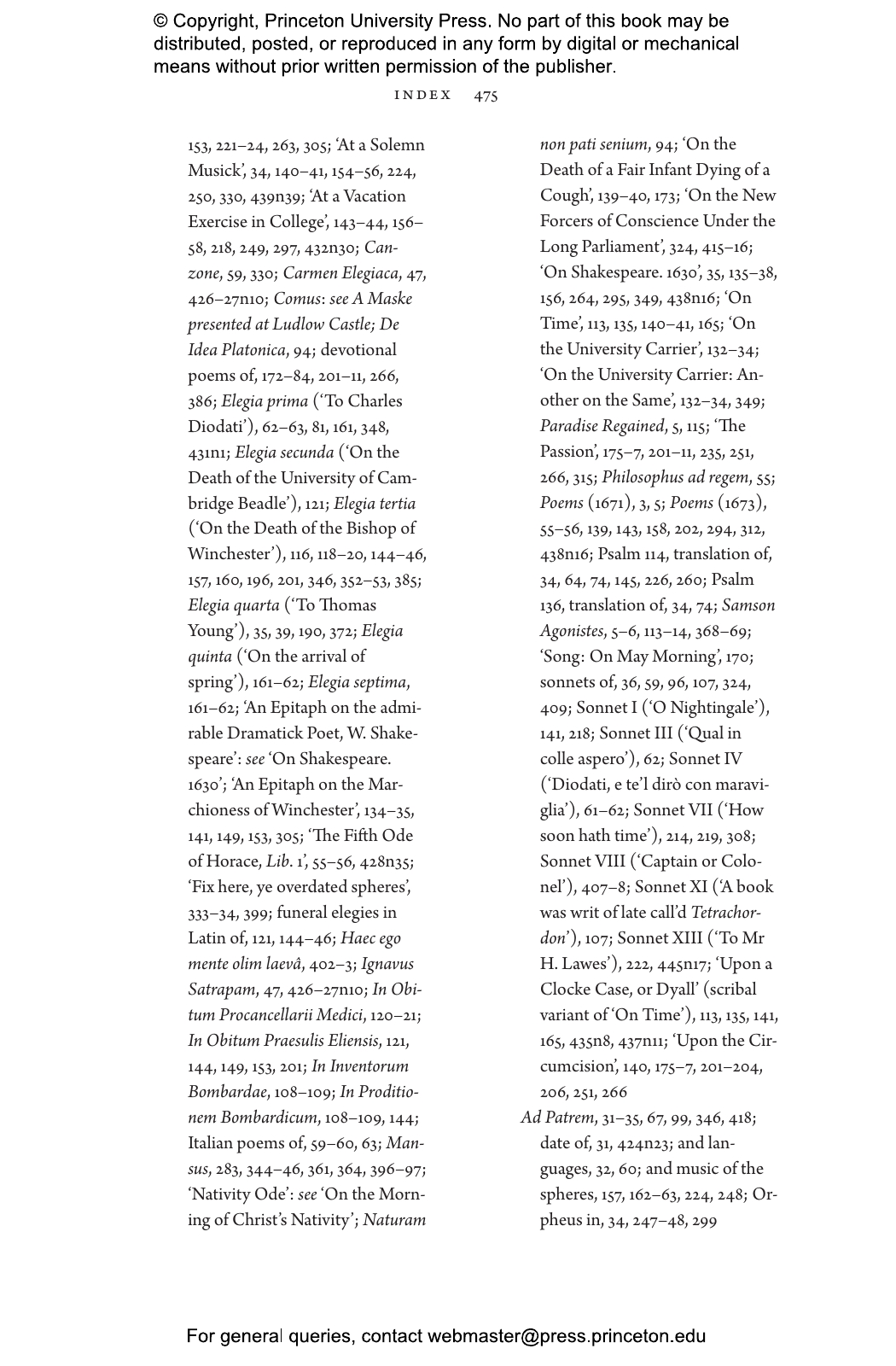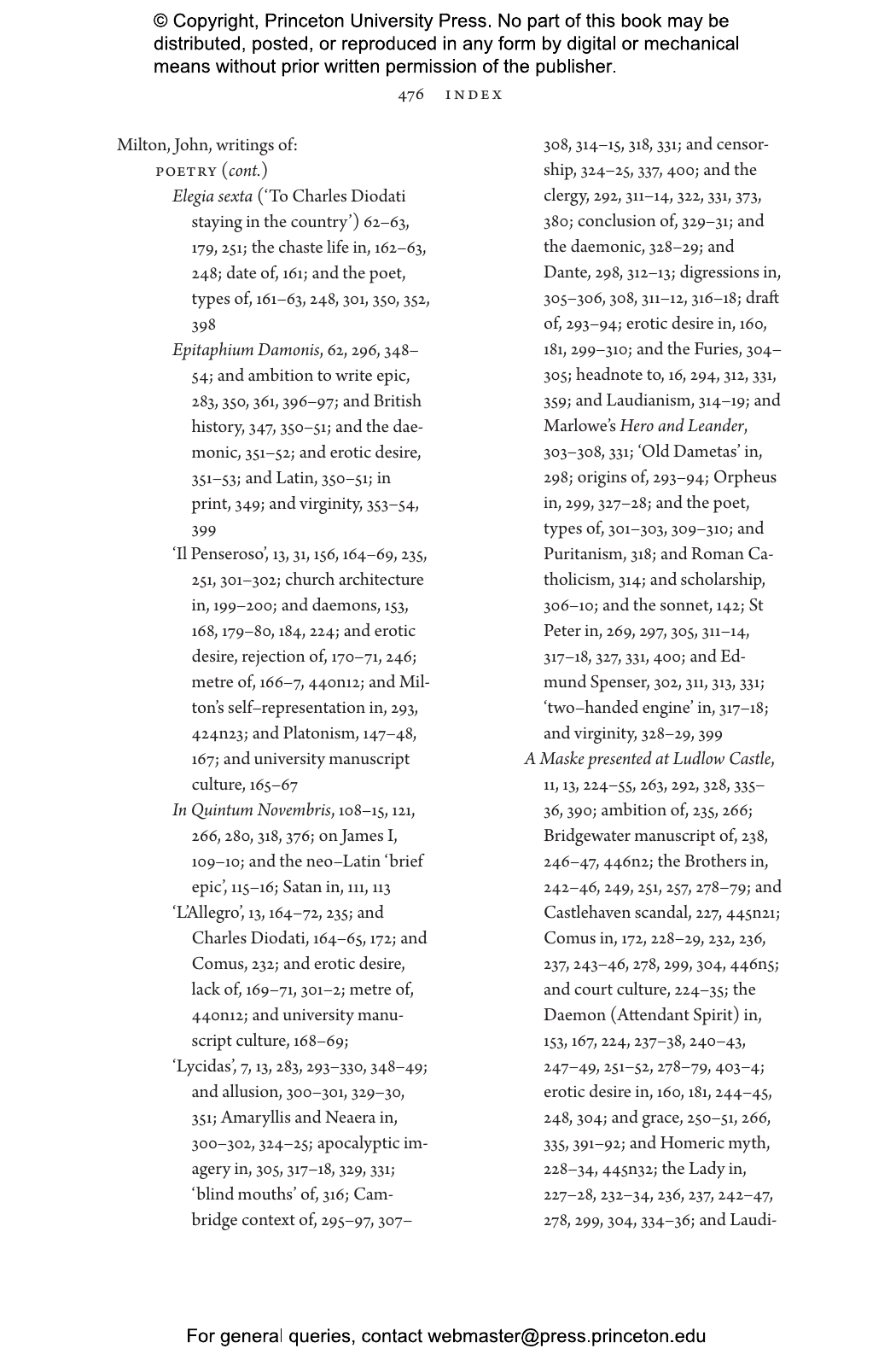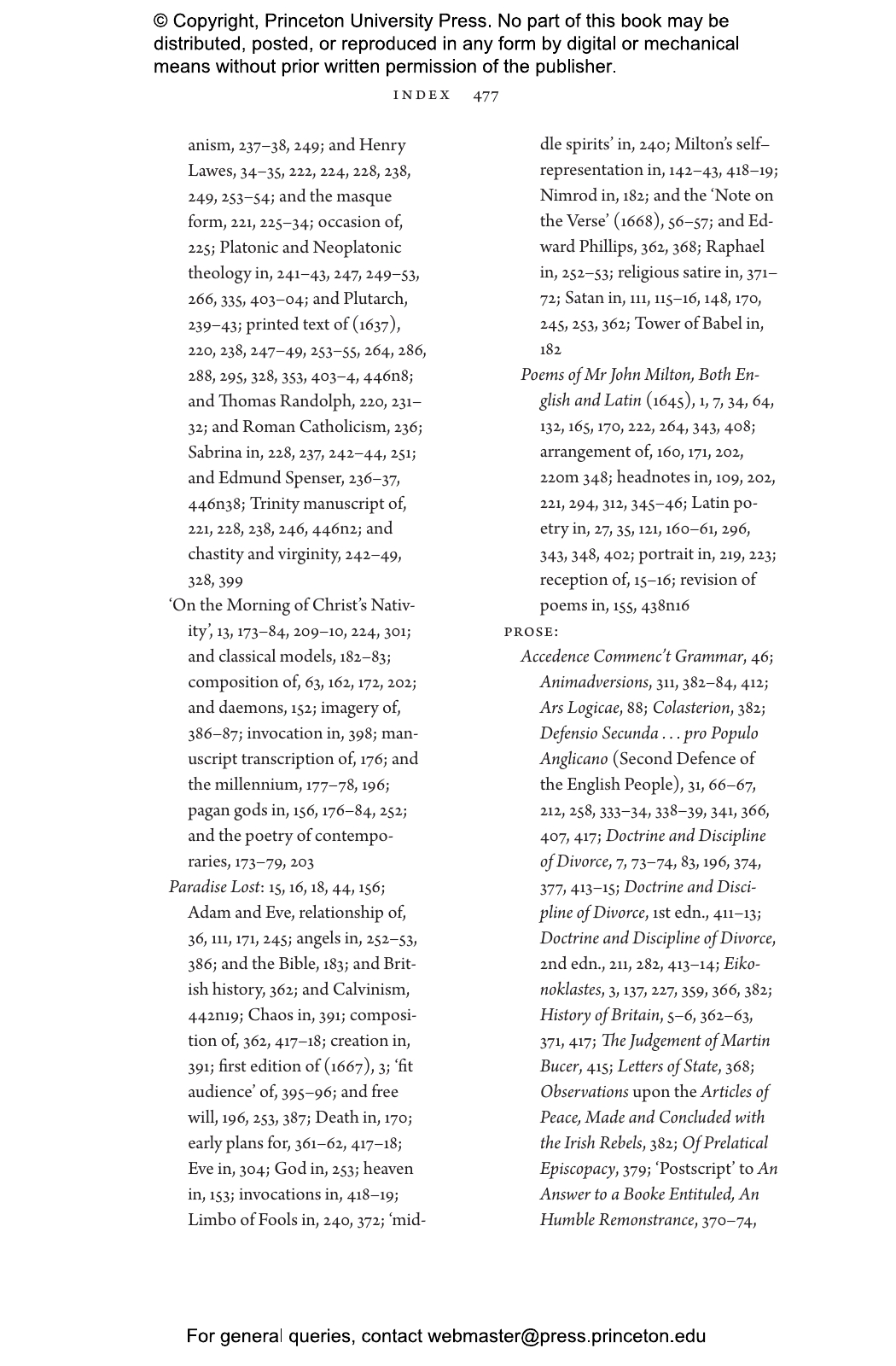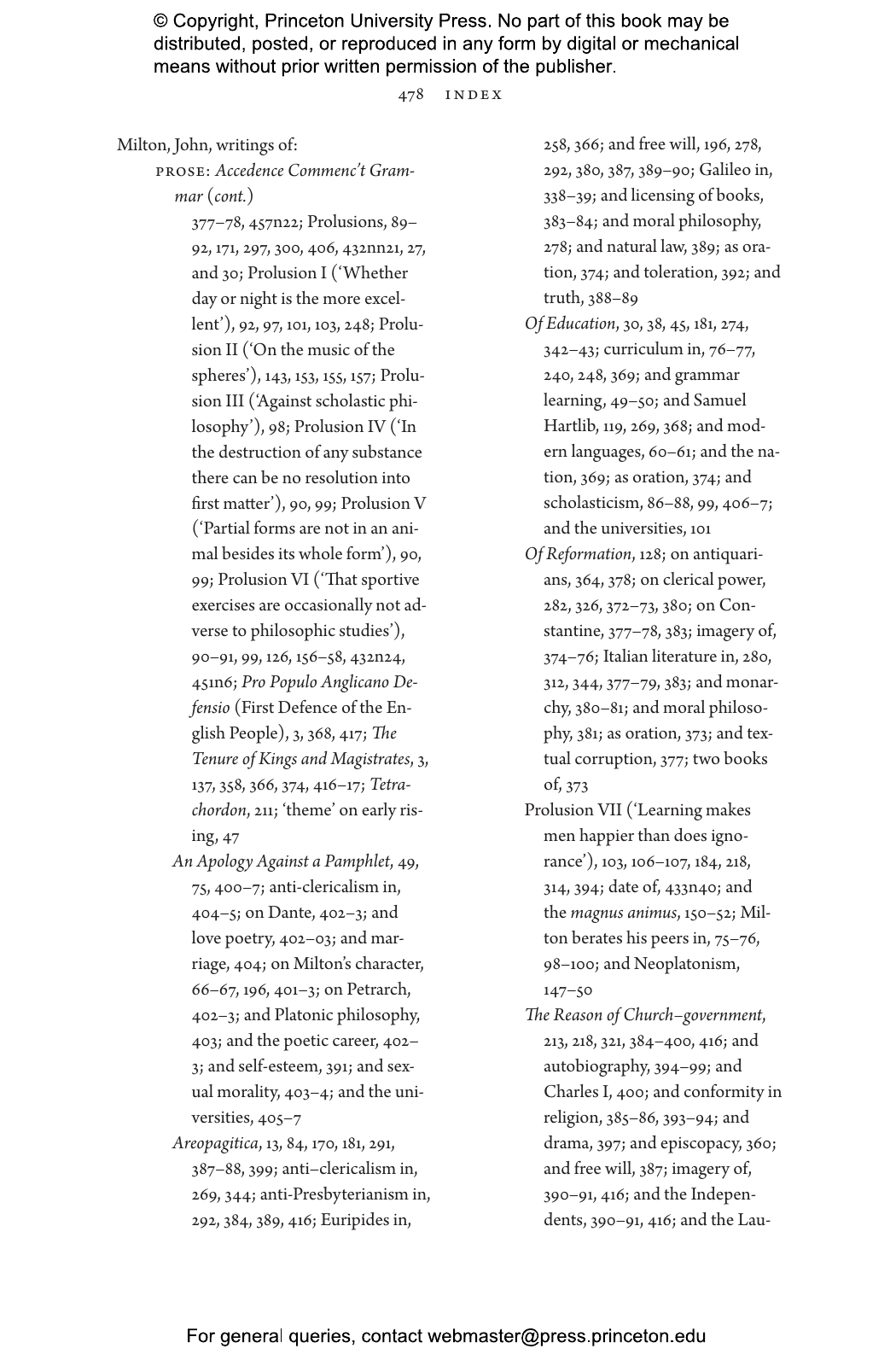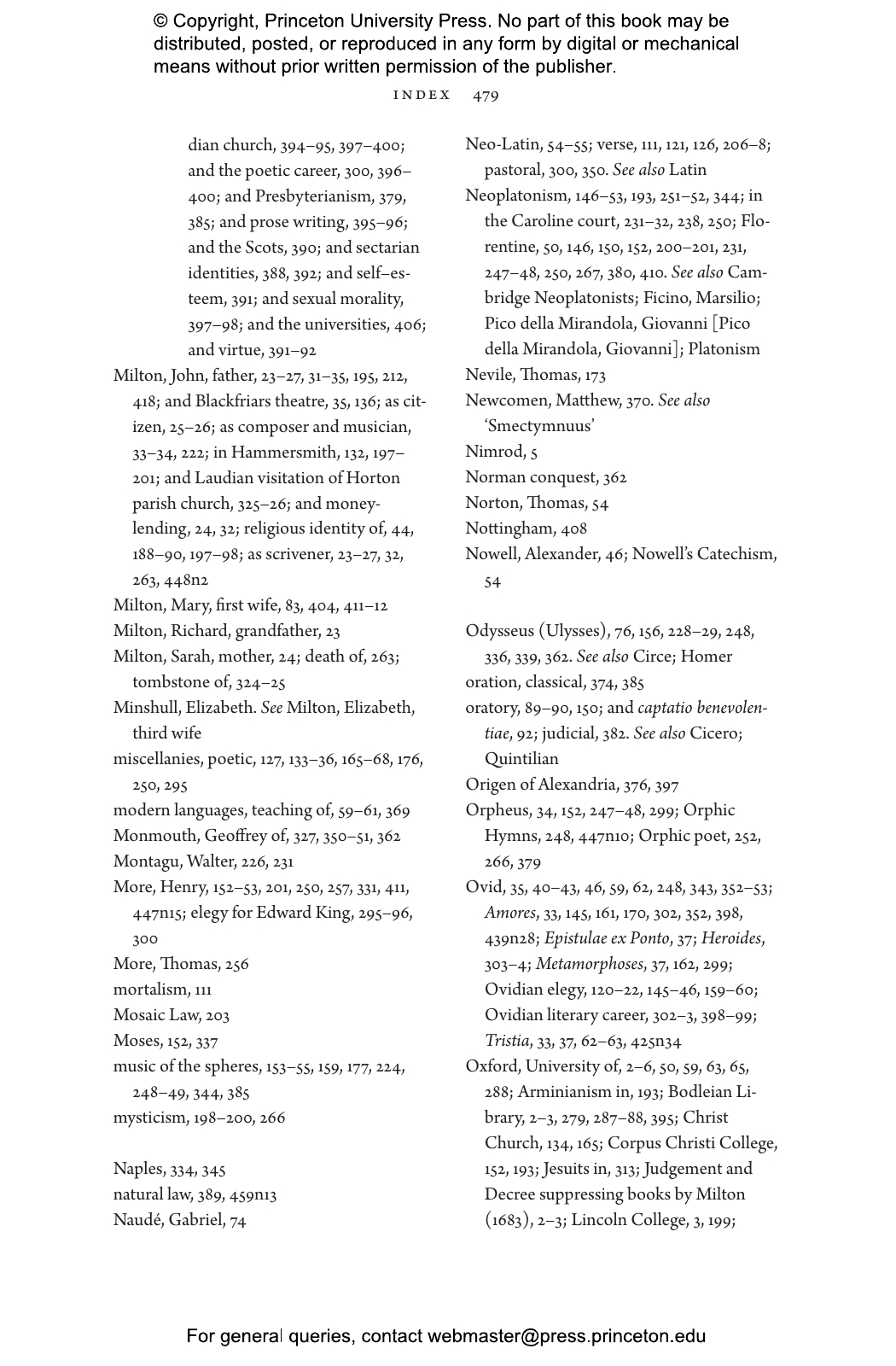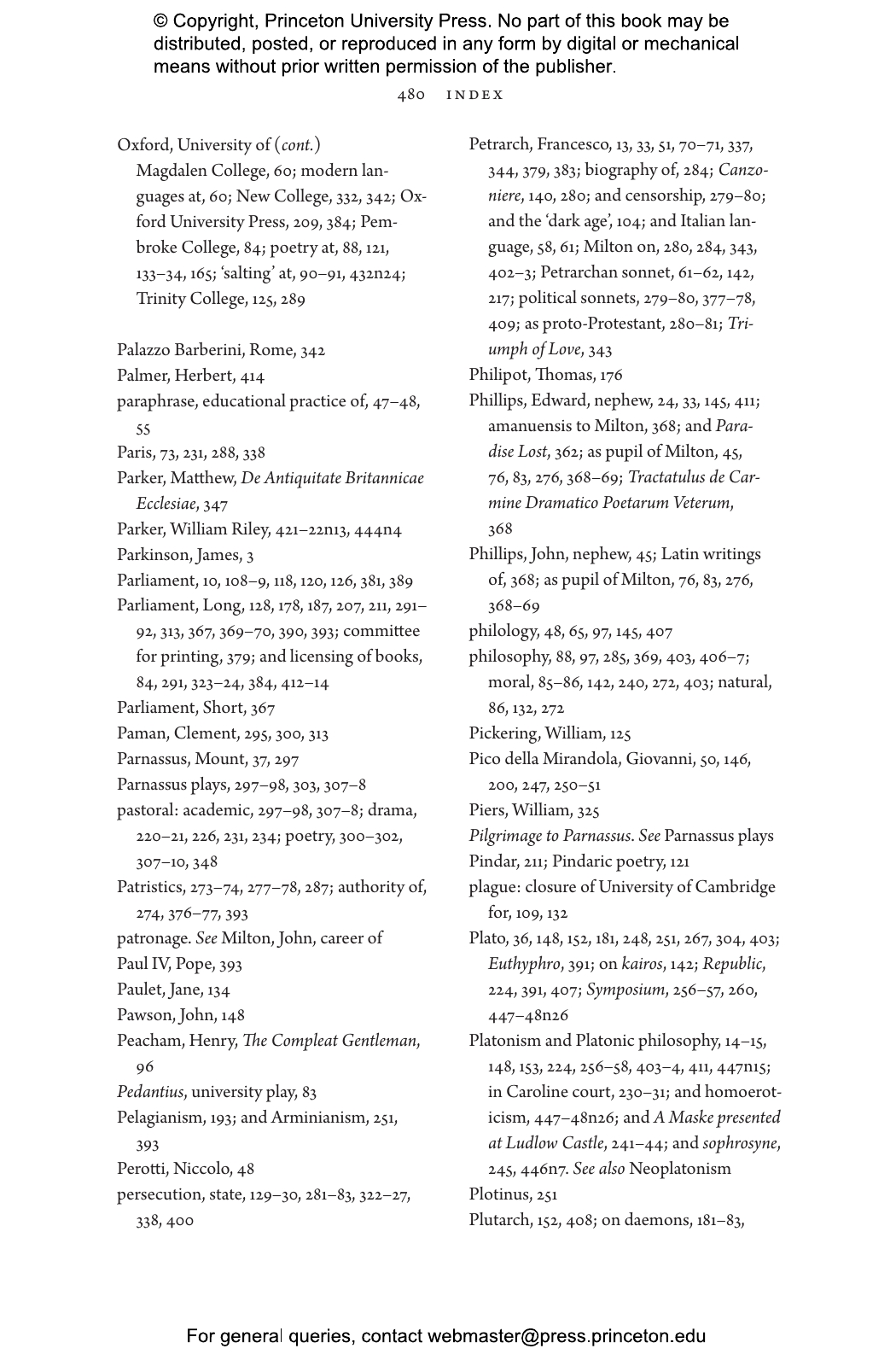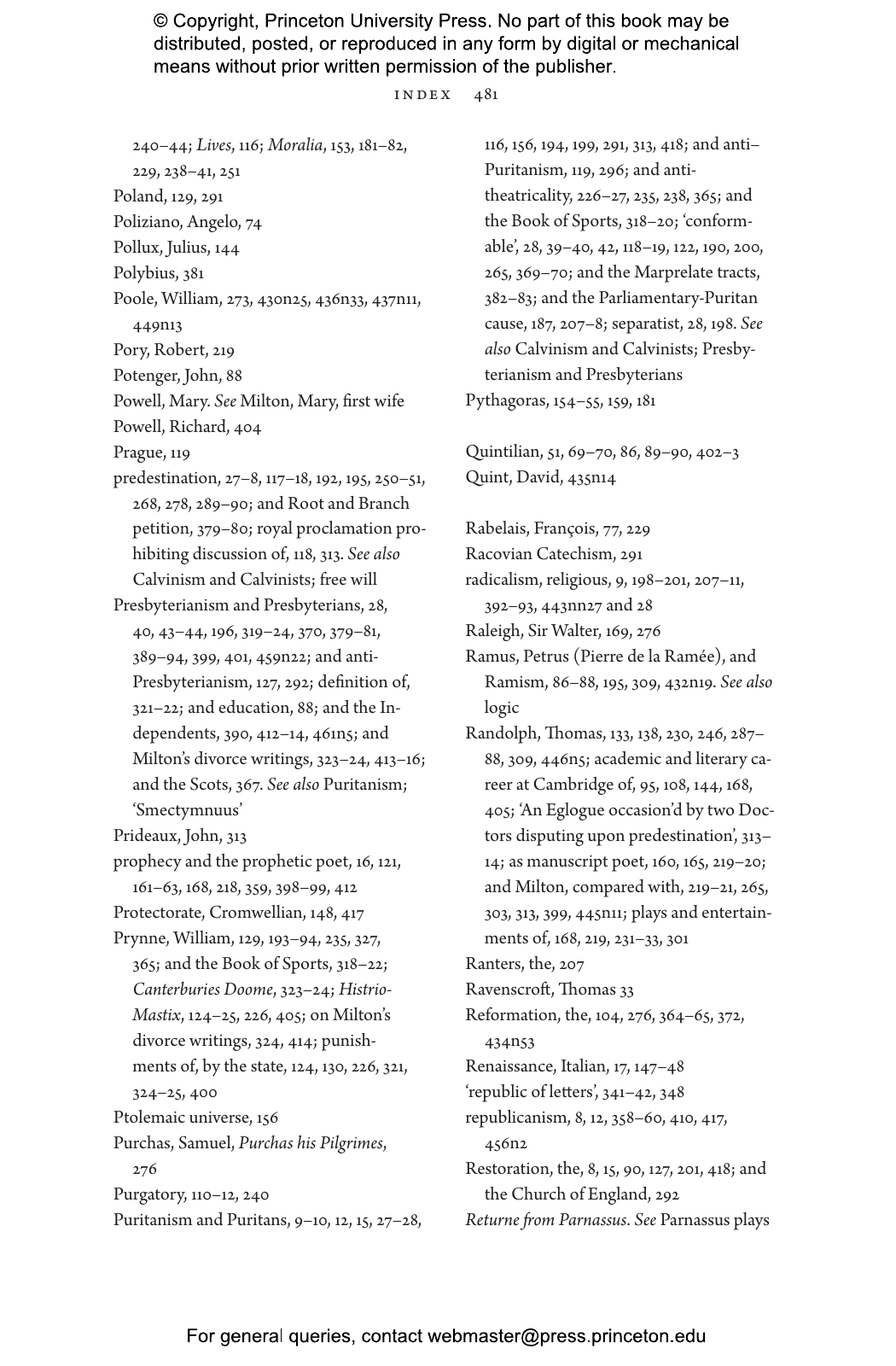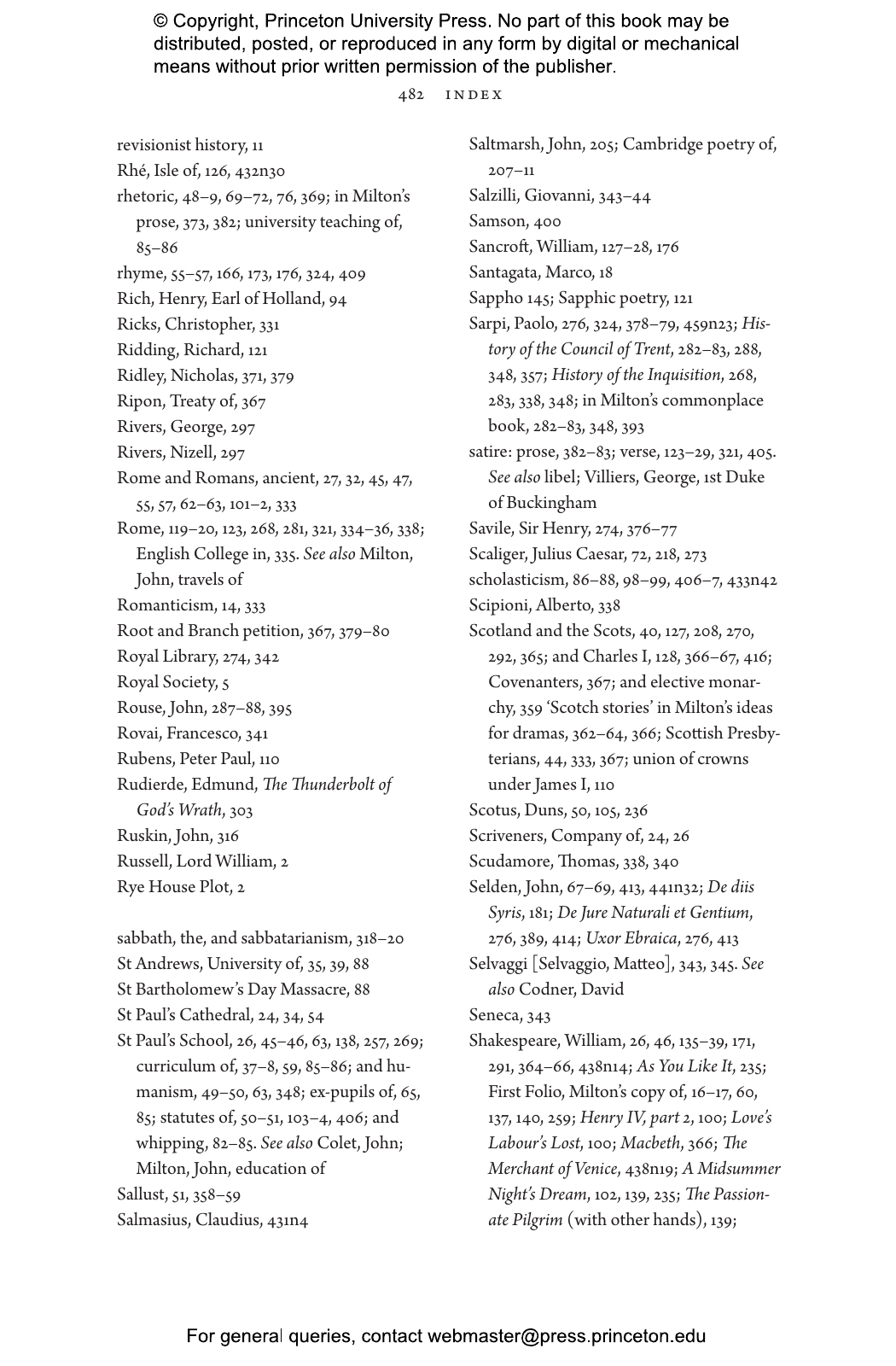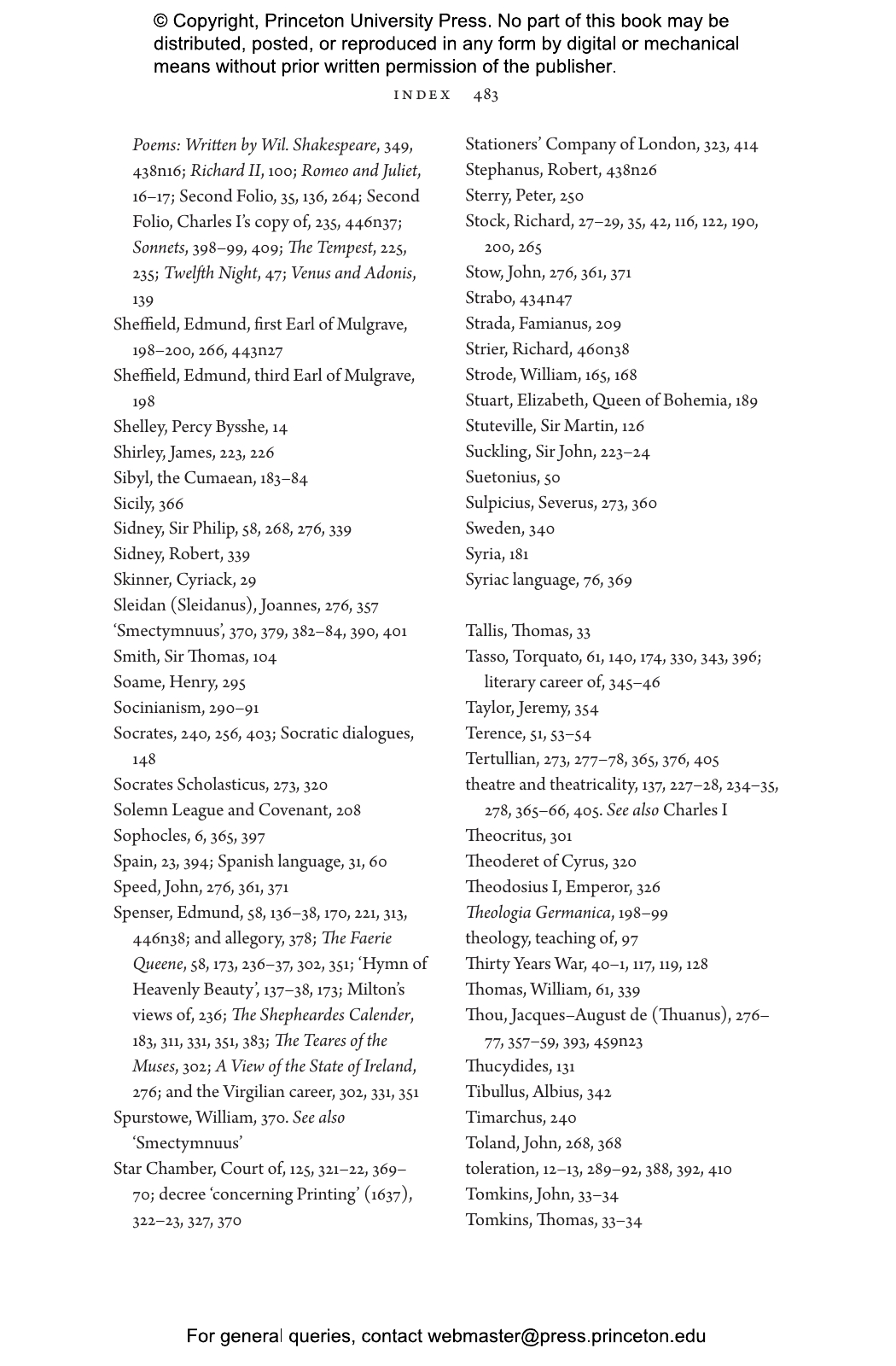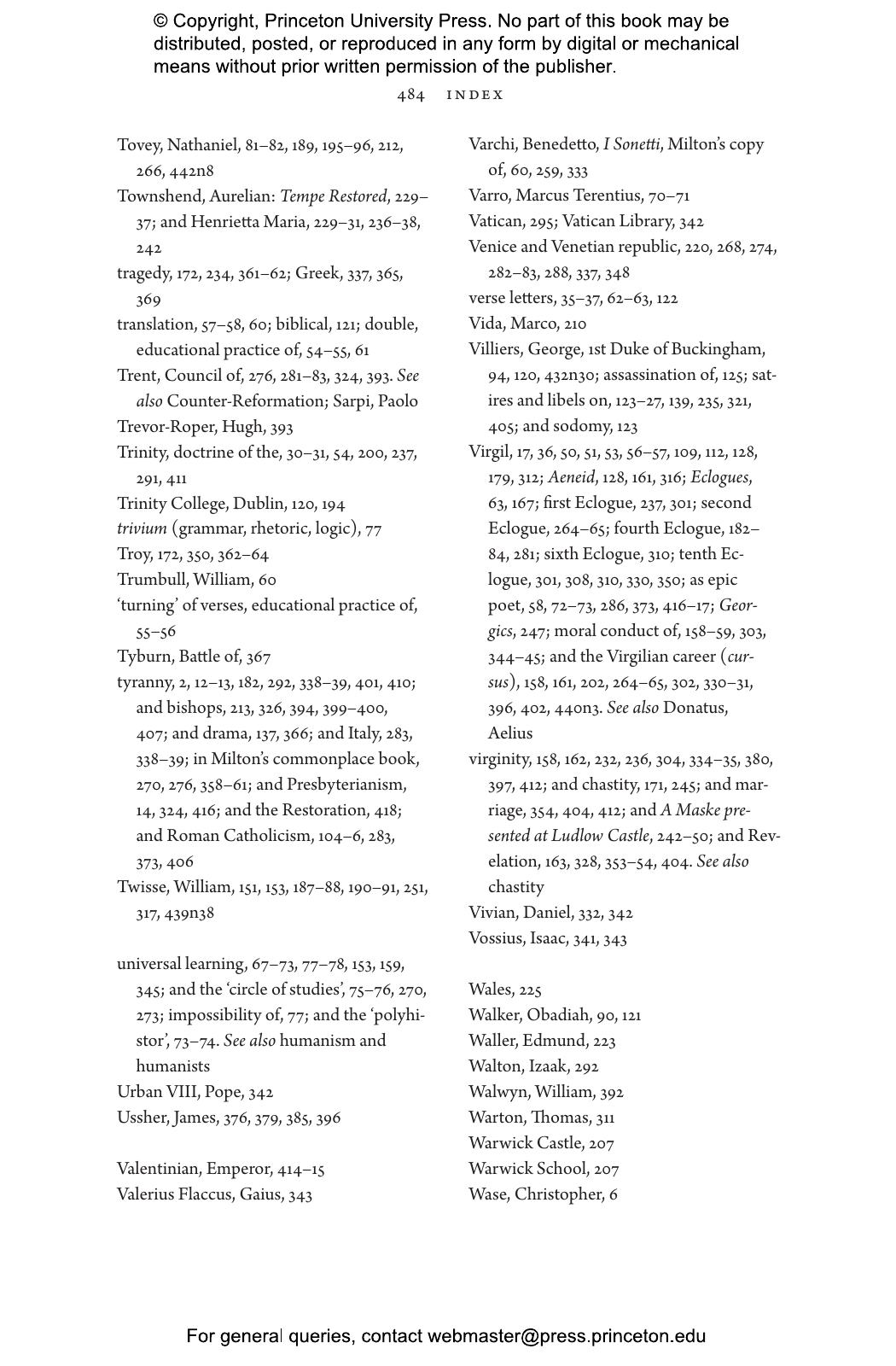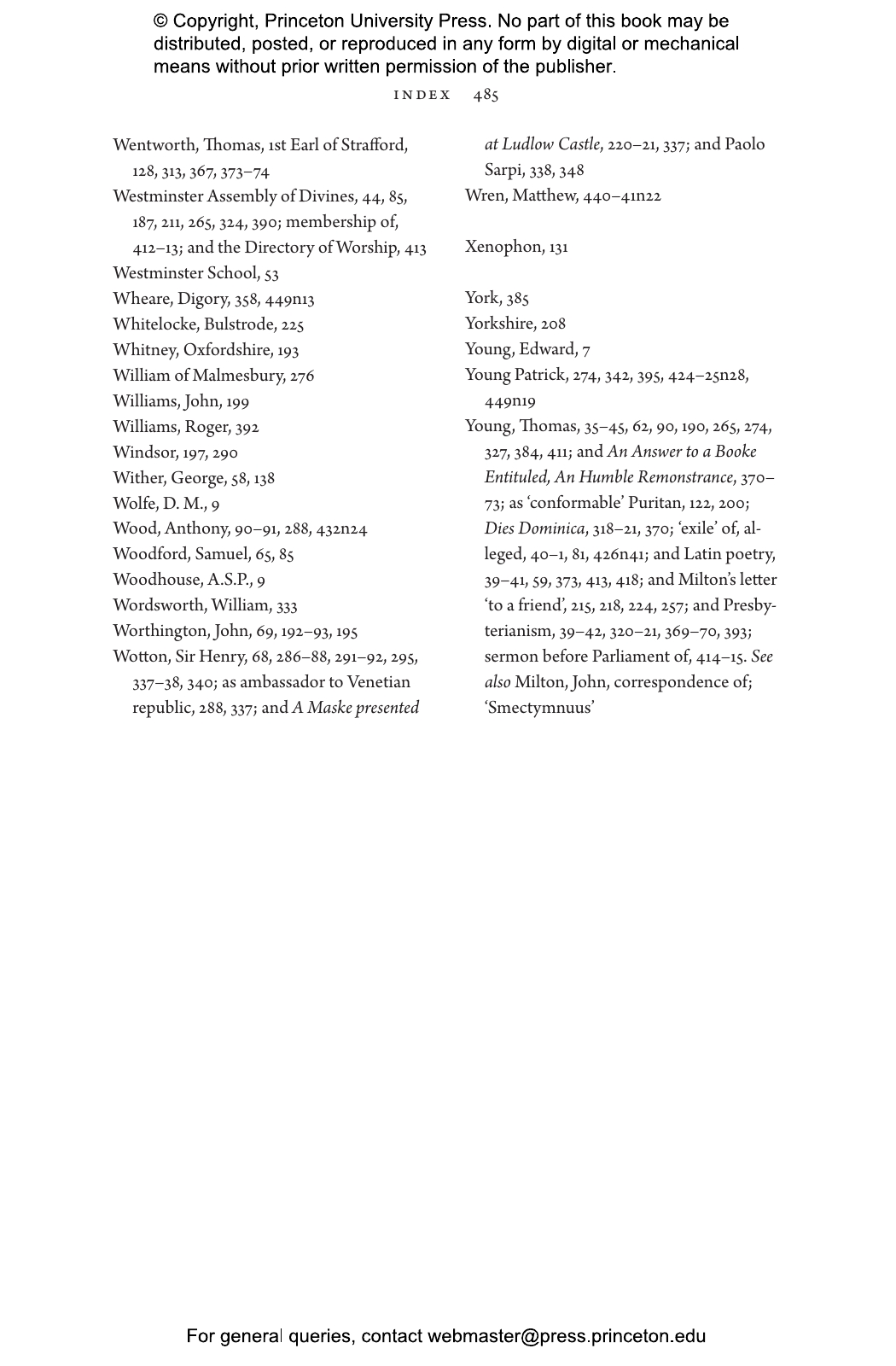John Milton (1608–1674) has a unique claim on literary and intellectual history as the author of both Paradise Lost, the greatest narrative poem in English, and prose defences of the execution of Charles I that influenced the French and American revolutions. Tracing Milton’s literary, intellectual, and political development with unprecedented depth and understanding, Poet of Revolution is an unmatched biographical account of the formation of the mind that would go on to create Paradise Lost—but would first justify the killing of a king.
Biographers of Milton have always struggled to explain how the young poet became a notorious defender of regicide and other radical ideas such as freedom of the press, religious toleration, and republicanism. In this groundbreaking intellectual biography of Milton’s formative years, Nicholas McDowell draws on recent archival discoveries to reconcile at last the poet and polemicist. He charts Milton’s development from his earliest days as a London schoolboy, through his university life and travels in Italy, to his emergence as a public writer during the English Civil War. At the same time, McDowell presents fresh, richly contextual readings of Milton’s best-known works from this period, including the “Nativity Ode,” “L’Allegro” and “Il Penseroso,” Comus, and “Lycidas.”
Challenging biographers who claim that Milton was always a secret radical, Poet of Revolution shows how the events that provoked civil war in England combined with Milton’s astonishing programme of self-education to instil the beliefs that would shape not only his political prose but also his later epic masterpiece.
Awards and Recognition
- Winner of the James Holly Hanford Award, Milton Society of America
"Laudably cool-headed. . . . McDowell manages to shine new light even on some of the best-trodden territory. . . . [A] tour de force."—Roberta Klimt, Times Literary Supplement
"A terrific work of scholarship."—Jonathan Bate, Catholic Herald
"[McDowell] transforms our understanding of Milton’s emergent worldview with intelligence, authority and considerable flair. . . . Poet of Revolution will be the standard account of its subject, and the starting point for further discussion of Milton’s early life, for a long time to come"—Rhodri Lewis, Prospect
"[For McDowell] the crucial question is the one that has defined and divided Milton scholarship from the beginning, the question of politics. . . . We need not wonder why Milton becomes a radical, [McDowell] suggest[s], for Milton himself tells us why: the poet made the polemicist and the writer the revolutionary."—Catherine Nicholson, New York Review of Books
"McDowell’s erudite Poet of Revolution: The Making of John Milton helps us understand why and how Milton pursued poetic glory. . . . [He] skillfully integrates Milton’s literary world with his dangerous, complex, and rapidly changing world of religion and politics."—A. M. Juster, Los Angeles Review of Books
"Thoroughly researched and elegantly written. . . . A wonderful book."—Joad Raymond, History Today
"This is an important work, possibly the most significant contribution to Milton studies in more than a decade."—Geoff Ridden, Early Modern Literary Studies
"Erudite, engaged, original, and illuminating."—Paul Hammond, Seventeenth Century
"This new book by Nicholas McDowell is superior to anything that I’ve yet read."—Paul Lay, FiveBooks
"One of my favorite non-fiction works this year. . . . Every page is enjoyable."—Tyler Cowen, Marginal Revolution
"[A] magnificent intellectual biography."—Daniel Johnson, Law & Liberty
"McDowell’s new study, Poet of Revolution, tries to account for Milton’s transformation from ‘obscure student poet in the early 1630s, albeit one with grand Virgilian pretensions, to a leading oppositional prose polemicist as civil war broke out a decade later.'"—Maggie Kilgour, London Review of Books
"[A] tour-de-force pilgrimage through Milton's formative years. . . . Poet of Revolution is a heroic work, a judicious and well-written biography of England's greatest poet."—Paul Krause, Merion West
"One cannot do justice to McDowell’s achievement in this limited space. . . . Every page is rich in valuable information about Milton. . . . [A] major, innovative contribution to Milton studies."—Choice Reviews
"[A] very ambitious and rewarding book. Any student of 17th-century history will learn a great deal from it."—Pranav Jain, Journal of the History of Ideas Blog
"A rich and detailed account of Milton's 'intellectual and political formation.' . . . [McDowell] brings Milton alive for readers, describing his material life, where he lived and travelled, what he read and puzzled over, and whom he engaged with at school and abroad."—Amy Gais, Review of Politics
"As he chronicles the life of this cautious figure, McDowell . . . offers some of the most comprehensive
accounts of Milton's early works to appear in a biography, or perhaps anywhere else."—Blaine Greteman, Milton Quarterly
"This is a masterful and engaging intellectual biography. McDowell has a new narrative to tell about Milton during these formative years. Chapter after chapter contain fresh information and sharp new readings of Milton's works and the biographical evidence."—David Quint, Yale University
“This is a superb book and a massive achievement. It will be the decisive book on the subject for a generation.”—William Poole, University of Oxford
“A remarkable book that is a pleasure to read, Poet of Revolution is consistently illuminating—a rigorous, imaginative, and ambitiously comprehensive account of Milton’s intellectual development.”—Paul Stevens, University of Toronto
"A really brilliant survey of Milton’s formative years, which makes convincing sense of all the seeming contradictions in his intellectual development, and of his character both as polemicist and poet."—Tom Holland, author of Dominion: The Making of the Western Mind
